Use this nursing care plan and management guide to help care for patients with chronic renal failure. Learn about the nursing assessment, nursing interventions, goals and nursing diagnosis for chronic renal failure in this guide.
What is Chronic Renal Failure?
Chronic renal failure (CRF) or chronic kidney disease (CKD) is a progressive condition characterized by structural and functional changes to the kidney due to various causes. CKD is typically defined as a reduction in kidney function, an estimated glomerular filtration rate (eGFR) of less than 60 mL/min per 1.73 m², or markers of kidney damage, such as albuminuria, hematuria, or abnormalities detected through laboratory testing or imaging and that are present for at least three months. Approximately 10% of adults worldwide are affected by some form of CKD, which results in 1 to 2 million deaths and 28 million years of life lost each year (Kalantar-Zadeh et al., 2021).
CKD is associated with an increased risk of cardiovascular disease and end-stage renal disease (ESRD). ESRD is the final stage of kidney disease, and kidney disease is the 10th leading cause of death in the United States (Arora & Batuman, 2023).
The different stages of CKD form a continuum, and are as follows:
- Stage 1: Kidney damage with normal or increased GFR (>90 mL/min/1.73 m²)
- Stage 2: Mild reduction in GFR (60 to 89 mL/min/1.73 m²)
- Stage 3a: Moderate reduction in GFR (45 to 59 mL/min/1.73 m²)
- Stage 3b: Moderate reduction in GFR (30 to 44 mL/min/1.73 m²)
- Stage 4: Severe reduction in GFR (15 to 29 mL/min/1.73 m²)
- Stage 5: Kidney failure (GFR <15 mL/min/1.73 m² or dialysis)
Clinical risk factors for accelerated progression of CKD are proteinuria, hypertension, Black race, and hyperglycemia. Also, environmental exposures such as lead, smoking, metabolic syndrome, possibly some analgesic agents, and obesity have also been linked to the accelerated progression of CKD (Vaidya & Aeddula, 2022).
Clients with CKD stages 1 to 3 are generally asymptomatic. Typically, it is not until stages 4 to 5 (GFR < 30 mL/min/1.73 m²) that endocrine or metabolic derangements or disturbances in water or electrolyte balance become clinically manifest (Arora & Batuman, 2023).
Nursing Care Plans and Management
The nursing care planning goals for patients with chronic renal failure include monitoring and managing fluid and electrolyte imbalances, preventing complications such as infection and hypertension, providing dietary counseling, and coordinating with other healthcare professionals to optimize the patient’s overall care and promoting self-care and compliance to treatment regimens to delay the progression of the disease and improve the quality of life for the patient. Client education is also critical as this is a chronic disease and thus requires long-term treatment.
Nursing Problem Priorities
The following are the nursing priorities for patients with chronic kidney disease (CKD):
- Management of fluid and electrolyte balance
- Blood pressure control
- Monitoring and management of renal function
- Medication administration and compliance
- Dietary modifications and nutritional support
- Assessment and management of complications (e.g., anemia, cardiovascular disease)
- Education on self-care and lifestyle modifications
- Regular assessment and management of comorbidities (e.g., diabetes, hypertension)
Nursing Assessment
Assess for the following subjective and objective data:
- Nausea and vomiting
- Loss of appetite
- Fatigue and weakness
- Sleep disturbances
- Increased urination (polyuria) or decreased urination (oliguria)
- Urinating more frequently, especially at night (nocturia)
- Foamy or bubbly urine
- Blood in the urine (hematuria)
- Pale urine or dark, tea-colored urine
- Decreased mental sharpness
- Muscle twitches and cramps
- Swelling of feet and ankles
- Persistent pruritus
- Chest pain due to uremic pericarditis
- Uncontrolled hypertension
- Shortness of breath due to pulmonary edema
Assess for factors related to the cause of chronic kidney disease (CKD):
- Fluid imbalances affecting circulating volume, myocardial workload, and systemic vascular resistance (SVR)
- Alterations in rate, rhythm, and cardiac conduction (electrolyte imbalances, hypoxia)
- Accumulation of toxins (urea), soft-tissue calcification (deposition of calcium phosphate)
- Abnormal blood profile (suppressed erythropoietin production/secretion; decreased RBC production and survival; altered clotting factors; increased capillary fragility)
Nursing Diagnosis
Following a thorough assessment, a nursing diagnosis is formulated to specifically address the challenges associated with chronic kidney disease (CKD) based on the nurse’s clinical judgement and understanding of the patient’s unique health condition. While nursing diagnoses serve as a framework for organizing care, their usefulness may vary in different clinical situations. In real-life clinical settings, it is important to note that the use of specific nursing diagnostic labels may not be as prominent or commonly utilized as other components of the care plan. It is ultimately the nurse’s clinical expertise and judgment that shape the care plan to meet the unique needs of each patient, prioritizing their health concerns and priorities.
Nursing Goals
Goals and expected outcomes may include:
- The client will maintain cardiac output as evidenced by BP and heart rate within the client’s normal range; peripheral pulses are strong and equal with prompt capillary refill time.
- The client will experience no signs/symptoms of bleeding/hemorrhage.
- The client will maintain/demonstrate improvement in laboratory values.
- The client will not experience injury as evidenced by maintenance of normal BP, hemoglobin, and hematocrit levels (specify lower limit).
- The client denies bone pain or sensory loss.
- The client will regain/maintain an optimal level of mentation.
- The client will identify ways to compensate for cognitive impairment/memory deficits.
- The client will maintain intact skin.
- The client will demonstrate behaviors/techniques to prevent skin breakdown/injury.
- The client will maintain the integrity of mucous membranes.
- The client will identify/initiate specific interventions to promote healthy oral mucosa.
- The client will verbalize understanding of the condition/disease process, therapeutic needs, and potential complications.
- The client will correctly perform the necessary procedures and explain the reasons for the actions.
- The client will demonstrate/initiate necessary lifestyle changes.
- The client and family members will identify positive coping mechanisms.
- The client and family members will begin to work through the grief process.
- The client will display a continuous flow of urine with adequate output for the individual situation.
- The client will demonstrate behaviors to regain bladder and urinary control.
- The client will empty their bladder regularly and completely.
Nursing Interventions and Actions
Therapeutic interventions and nursing actions for patients with chronic kidney disease (CKD) may include:
1. Managing Decrease in Cardiac Output
Extracellular volume expansion and total body volume overload result from the failure of sodium and free-water excretion. This generally becomes clinically manifested when the GFR falls to less than 10 to 15 mL/min/1.73 m² when compensatory mechanisms have become exhausted. As kidney function declines further, sodium retention and extracellular volume expansion lead to peripheral edema and, not uncommonly, pulmonary edema and hypertension (Arora & Batuman, 2023). Due to the essential role of the kidney, the human body possesses extensive mechanisms to preserve GFR. An important decrease in cardiac output will lead to a redistribution of blood volume within the body to preserve kidney perfusion (Mullens & Nijst, 2016).
Auscultate heart and lung sounds. Evaluate the presence of peripheral edema, vascular congestion, and reports of dyspnea.
S3 and S4 heart sounds with muffled tones, tachycardia, irregular heart rate, tachypnea, dyspnea, crackles, wheezes, edema, and jugular distension suggest heart failure. Progressive renal dysfunction is often attributed to hypoperfusion of the kidney due to progressive impairment of cardiac output. However, a drop in systemic blood pressure, venous congestion, and intra-abdominal pressure are hemodynamic parameters that are strongly associated with worsening renal function in heterogenous populations with heart failure (Mullens & Nijst, 2016).
Assess presence and degree of hypertension: monitor BP; note postural changes (sitting, lying, standing).
Significant hypertension can occur because of disturbances in the renin-angiotensin-aldosterone system (caused by renal dysfunction). Although hypertension is common, orthostatic hypotension may occur because of intravascular fluid deficit, response to effects of antihypertensive medications, or uremic pericardial tamponade. Hypertension is a frequent sign of CKD but should not by itself be considered a marker of it because elevated blood pressure is also common among people without CKD (Arora & Batuman, 2023).
Investigate reports of chest pain, noting location, radiation, severity (0–10 scale), and whether or not it is intensified by deep inspiration and supine position.
Although hypertension and chronic heart failure may cause MI, approximately half of CRF clients on dialysis develop pericarditis, potentiating the risk of pericardial effusion or tamponade. A significant key finding in uremic pericarditis is the presence of chest pain in a client with a history of CKD or ESRD. Most clients will present with pleuritic chest pain that improves when leaning forward (Nesheiwat & Lee, 2022).
Evaluate heart sounds (note friction rub), BP, peripheral pulses, capillary refill, vascular congestion, temperature, and sensorium or mentation.
The presence of sudden hypotension, paradoxical pulse, narrow pulse pressure, diminished or absent peripheral pulses, marked jugular distension, pallor, and rapid mental deterioration indicate tamponade, which is a medical emergency. Physical examination reveals a pericardial friction rub which is usually scratchy and squeaky and is best appreciated on the left sternal border with the client leaning forward and holding their breath (Nesheiwat & Lee, 2022).
Assess activity level and response to activity.
Weakness can be attributed to heart failure and anemia. Normochromic normocytic anemia principally develops from the decreased renal synthesis of erythropoietin, the hormone responsible for bone marrow stimulation for red blood cell production. The anemia starts early in the course of the disease and becomes more severe as viable renal mass shrinks and the GFR progressively decreases (Arora & Batuman, 2023).
Monitor electrocardiogram results.
Electrocardiogram findings of pericarditis include diffuse ST and T-wave elevations. To distinguish these findings from an ST-segment elevation myocardial infarction (STEMI), the ST and T-wave findings in pericarditis are typically diffuse and not localized to coronary artery territory. Normalization of the ST segment and diffuse T-wave inversions are seen in later stages (Nesheiwat & Lee, 2022).
Monitor electrolytes, chest x-ray, and echocardiogram.
See Laboratory and Diagnostic Procedures
Promote sodium restriction and adequate nutritional intake.
Reduction in salt intake may slow the progression of diabetic CKD, at least in part by lowering blood pressure. A meta-analysis found that dietary salt reduction significantly reduced blood pressure in type 1 and type 2 diabetes, with results comparable to those of single-drug therapy. This finding is consistent with other evidence relating salt intake to blood pressure and albuminuria in hypertensive and normotensive clients (Arora & Batuman, 2023).
Administer antihypertensive medications as indicated.
See Pharmacologic Management
Prepare for dialysis.
Reduction of uremic toxins and correction of electrolyte imbalances and fluid overload may limit and prevent cardiac manifestations, including hypertension and pericardial effusion. The preferred method is to institute dialysis or intensify dialysis for clients who have been on dialysis already. Uremic pericarditis has been shown to respond rapidly to dialysis, leading to the resolution of chest pain and pericardial effusion in most cases. Effective dialysis therapy has been observed to be helpful in over 50% of cases (Nesheiwat & Lee, 2022).
Assist with pericardiocentesis as indicated.
Accumulation of fluid within the pericardial sac can compromise cardiac filling and myocardial contractility, impairing cardiac output and potentiating the risk of cardiac arrest. If there is treatment failure with dialysis, the recommendation is to perform pericardiocentesis in clients with uremic pericarditis with effusion within 7 to 14 days. In clients with severe uremic pericarditis and effusion leading to cardiac tamponade, emergent pericardiocentesis is recommended (Nesheiwat & Lee, 2022).
Prepare the client for pericardiectomy.
A pericardiectomy, the surgical removal of the pericardium, is typically not the first-line management option and is only utilized for recurrent pericarditis with pericardial effusions. Recommendations are to pursue an echocardiogram every 3 to 5 days during an acute event to monitor pericarditis and effusion resolution (Nesheiwat & Lee, 2022).
2. Promoting Infection Control and Minimizing Risk of Infection
Evidence suggests that uremia is associated with worse immune response, as exemplified by the diminished antibody response to hepatitis B vaccination or by the higher risk of infections as kidney function worsens, not otherwise explained by concurrent comorbidities, and by the historical observation that autoimmune diseases such as systemic lupus erythematosus are less aggressive once clients have uremia. Clients with CKD have a two times higher risk of death after respiratory infections. During the COVID-10 pandemic, data suggest a two-times increase in mortality from COVID-19 in the presence of CKD (Kalantar-Zadeh et al., 2021).
Note reports of increasing fatigue and weakness. Observe for tachycardia, skin and mucous membranes pallor, dyspnea, and chest pain.
This may reflect the effects of anemia and the cardiac response necessary to keep cells oxygenated. Anemia, which in CKD develops primarily as a result of a decreased renal synthesis of erythropoietin, manifests as fatigue, reduced exercise capacity, impaired cognitive and immune function, and reduced quality of life (Arora & Batuman, 2023).
Monitor the level of consciousness and behavior.
Anemia may cause cerebral hypoxia manifested by changes in mentation, orientation, and behavioral responses. Hypoxia is the most potent stimulus to the production of erythropoietin by the kidneys. In a healthy individual, erythropoietin exerts its effects in the bone marrow to help in the production of RBCs, thereby improving oxygen concentration in the blood and relieving hypoxia (Colbert & Besa, 2023).
Evaluate response to activity, and ability to perform tasks. Assist as needed and develop a schedule for rest.
Anemia decreases tissue oxygenation and increases fatigue, which may require intervention, changes in activity, and rest. Lower levels of hemoglobin were found to be associated with greater work productivity losses and total activity impairments, suggesting potential economic consequences, with increased indirect costs related to the presence of anemia (van Haalen et al., 2020).
Observe for oozing from venipuncture sites, bleeding, ecchymotic areas following slight trauma, petechiae; joint swelling, or mucous membrane involvement (bleeding gums, recurrent epistaxis, hematemesis, melena, and hazy or red urine.
Bleeding can occur easily because of capillary fragility and altered clotting functions and may worsen anemia. No reticulocyte response occurs. RB survival is decreased, and the bleeding tendency is increased from uremia-induced platelet dysfunction (Arora & Batuman, 2023).
Hematest GI secretions and stool for blood.
Mucosal changes and altered platelet function due to uremia may result in gastric mucosal erosion and GI hemorrhage. Abnormal GI bleeding is a common and potentially serious complication of renal failure, and although dialysis has helped to reduce the incidence of severe hemorrhage, the high risk of morbidity and mortality associated with abnormal GI bleeding persists (Toke, 2010).
Monitor CBC, clotting factors, and iron levels.
See Laboratory and Diagnostic Procedures
Limit vascular sampling and combine laboratory tests when possible.
Recurrent or excessive blood sampling can worsen anemia. When blood is drawn from the body, it takes time for the body to replace the lost blood cells. The bone marrow produces new RBCs to replace those that have been lost, but this process takes time. If blood is drawn too frequently, the body may not be able to keep up with the demand for new RBCs.
Provide a soft toothbrush and electric razor; use the smallest needle possible and apply prolonged pressure following injections or vascular punctures.
This reduces the risk of bleeding and hematoma formation. When a needle is inserted into the skin, it can cause damage to the tissues, including blood vessels, which can lead to bleeding. Large needles are more likely to cause damage to blood vessels because they have a larger diameter and can penetrate deeper into the tissues.
Promote the intake of fruits and vegetables.
A review of potential health benefits of plant-based diets in clients with CKD found growing evidence that in individuals with estimated GFR of 30 to 59 mL/min/1.73 m², plant-based diets may delay progression to ESRD and dialysis and may potentially improve survival (Arora & Batuman, 2023).
Encourage the client to participate in physical activities as tolerated.
As regards the type of physical exercise, for clients on dialysis the strongest evidence is for aerobic exercise, which can improve physical fitness, muscular strength, and quality of life in this cohort. Resistance training has shown benefits for clients with earlier stages of CKD (Arora & Batuman, 2023).
Administer erythropoiesis-stimulating agents (ESAs) as indicated.
See Pharmacologic Management
Administer antacids, stool softeners, anticoagulants, erythropoietin, and iron preparations as indicated.
See Pharmacologic Management
Provide information about the importance of vaccinations.
Influenza and pneumococcal vaccinations might be an indirect way to prevent acute kidney injury and avoid CKD progression. Hepatitis b vaccination and COVID-19 vaccines may also help prevent the occurrence of these infections (Kalantar-Zadeh et al., 2021).
Assess temperature, respiratory, and urinary system changes as the disease progresses.
This provides information about the presence of infection caused by progressive chronic disease and its deteriorating effect on all systems. The innate immune system is ubiquitous and the most evolutionary conserved arm of the immune system. It includes defense mechanisms that generate rapid, nonspecific inflammatory responses to signals from pattern-recognition receptors (Syed-Ahmed & Narayanan, 2019).
Secure urine or sputum cultures for analysis.
See Laboratory and Diagnostic Procedure
Perform handwashing, and medical or surgical asepsis during procedures or care as appropriate. Instruct the client and family members in handwashing technique, and proper disposal of tissues and used articles.
This prevents the transmission of pathogens to the client. Hand washing is an important preventive measure to avoid transmission of infectious diseases. Medical personnel that comes in direct contact with the clients have a high chance of spreading the virus and nosocomial infections; therefore, it is of utmost necessity that they know proper hand-washing technique and that they wash their hands regularly following standard hand-washing guidelines (Khadka & Dani, 2020).
Administer antibiotic therapy as ordered (specify the drug, dose, route, and times).
See Pharmacologic Management
Teach the client and the family to decrease the growth of microorganisms by bathing daily, wiping from front to back after toileting, and wearing loose cotton underwear.
Information empowers the client and family members to help prevent infection. UTI is one of the most common infections affecting people in the community and hospitals. If left untreated, UTI can progress to worsening renal function, and cause pyelonephritis, sepsis, septic shock, and death. Therefore, it is important to prevent or treat UTIs in the earlier stages to prevent significant morbidity and mortality (Shankar et al., 2021).
Teach the client to avoid contact with persons with upper respiratory infections.
This prevents the transmission of infectious agents that may lead to pneumonia. During the COVID-19 pandemic, data suggest a two-times increase in mortality from COVID-19 in the presence of CKD. Despite screening and isolation of affected clients, outbreaks cannot always be prevented because some infected individuals can have long incubation periods or be asymptomatic carriers (Kalantar-Zadeh et al., 2021).
Encourage the client to utilize telemedicine when in need of medical consultation.
To maintain adequate staffing and to protect clients during the pandemic, a radical transformation with the use of telemedicine and remote care to guide dietary and therapeutic decisions (Kalantar-Zadeh et al., 2021). The client may use telehealth applications such as digital media, short messaging service or text messaging, mobile applications, interactive voice response, video conferencing, synchronous store-and-forward communication, and wireless communication using peripheral objects such as scales, BP cuffs, and glucometers (Tuot & Boulware, 2017).
Provide information about acceptable vaccines for clients with CKD.
Clients with CKD, regardless of etiology, are known to be vulnerable to vaccine-preventable infections because of impaired immunity, immunosuppressive treatments, and dialysis. Clients with early-stage CKD have minimal immune impairment and can be safely vaccinated. Clients with ESRD should not be excluded from routine vaccination practices for the risk of disease with live-attenuated vaccines (LAVs). However, the safety of LAVs such as measles, mumps, and rubella (MMR) and varicella zoster virus (VZV) has not been secured in transplant recipients. They can be safely vaccinated with inactivated ones. The client with CKD can be safely administered with hepatitis B-recombinant, influenza-inactivated, diphtheria-tetanus, MMR, varicella, recombinant zoster, and zoster vaccine live types of vaccines (Reddy et al., 2019).
Advocate for the early removal of medical devices such as urinary catheters, ventilators, and central venous catheters as appropriate.
Clients with CKD have a high risk of all-cause hospitalization, and thus prevention of hospital-acquired infections is crucial. Medical devices such as a ventilator, central venous catheters, and urinary catheters are frequently used for CKD clients and are important sources of infection. Prompt removal of these devices is critical to minimize the chance of device-associated infections (Ishigami & Matsushita, 2019).
3. Managing Cognitive Symptoms
Individuals with CKD are at substantially higher risk for cognitive impairment when compared with the general population. The prevalence of cognitive impairment in those with CKD is an astonishing 10% to 40%, depending on the method of cognitive impairment assessment and the CKD stage. Low estimated GFR (eGFR) and albuminuria are both independent risk factors for cognitive impairment, with albuminuria the stronger risk factor at higher eGFRs and eGFR the stronger risk factor in advanced CKD. The prevalence of cognitive impairment is highest among those with kidney failure requiring dialysis (Drew et al., 2019)
Assess the extent of impairment in thinking ability, memory, and orientation. Note attention span.
Uremic syndrome’s effect can begin with minor confusion, and irritability and progress to altered personality or inability to assimilate information and participate in care. Awareness of changes provides an opportunity for evaluation and intervention. Cognitive dysfunction in clients with CKD ranges in severity from mild cognitive impairment to dementia and involves a deficiency in multiple cognitive domains, such as memory, attention, language, visuospatial skills, and executive functions (Viggiano et al., 2020).
Ascertain from family or caregiver the client’s usual level of mentation.
This provides a comparison to evaluate the progression and resolution of impairment. Cognitive impairment can already be evident during the early stages of CKD. Mild cognitive impairment (MCI) is more common among clients with stage 1 to 4 CKD than in a matched population without CKD. Although MCI does not affect activities of daily living, 5 to 10% of clients with MCI will eventually progress to clinical dementia (Viggiano et al., 2020).
Assess cognitive impairment in specific cognitive domains.
Cognitive function is tested by various means, including a person’s ability to recall memorized lists of numbers, to draw an object on request, or to name a drawing, such as an animal. Cognitive impairment is assessed in specific cognitive domains, such as attention, memory, visuospatial ability, language skills, and executive function. Language ability is usually tested by presenting a picture and asking the client to name it. Visuospatial performance is tested by, for example, asking the client to copy a complex figure. Executive function can be assessed through the Trail Making Test type A (TMT-A), which tests cognitive processing speed, and the TMT-B (Viggiano et al., 2020).
Assess the client’s sleep pattern.
Sleep disorders can be quantified using polysomnography and actigraphy systems. Sleep apnea is caused by a dysfunction of the neuronal drive, termed central sleep apnea in 22 to 27% of adult clients with CKD. The nocturnal hypoxemia that accompanies sleep apnea in clients with CKD is associated with autonomic dysfunction and left ventricular hypertrophy and predicts a high risk of cardiovascular events in ESRD (Viggiano et al., 2020).
Assess for signs and symptoms of depression.
Forty-five percent of adult clients with CKD have depressive symptoms at the initiation of dialysis therapy, as assessed using self-report scales. However, these scales may emphasize somatic symptoms, specifically sleep disturbance, fatigue, and anorexia, that coexist with chronic disease symptoms (Arora & Batuman, 2023).
Utilize assessment tools in identifying confusion or delirium.
The 4AT is a brief, easy-to-use, validated tool used to assess for the presence of delirium and identify moderate to severe cognitive impairment with little training needed. It is sometimes referred to as the “abbreviated mental test score” (AMTS) and is free to use and download. The Montreal Cognitive Assessment (MoCA) tests visuospatial skills, memory recall, and attention. The Mini-Mental State Examination (MMSE) examines different domains with a score out of 30 indicating a cognitive decline. The gold standard assessment and diagnosis of delirium are the Confusion Assessment Method (CAM), a set of four questions that identify whether a client is delirious. The CAM relies on the nurse to note subtle changes from baseline behavior.
Monitor laboratory studies such as BUN and creatinine, serum electrolytes, glucose levels, and ABGs (Po2, pH).
See Laboratory and Diagnostic Procedure
Provide the client and family caregivers with information about the client’s status.
Some improvement in mentation may be expected with the restoration of more normal levels of BUN, electrolytes, and serum pH. Treatment decisions, such as dialysis modality and consideration of conservative care of kidney failure must be made as early as possible in the disease course of CKD. Early discussion with clients and family members, before the significant cognitive decline, will likely allow for a better alignment of client wishes and actual outcomes (Drew et al., 2019).
Provide a quiet or calm environment and judicious use of television, radio, and visitation.
This minimizes environmental stimuli to reduce sensory overload and confusion while preventing sensory deprivation. Clients with CKD show inattention and impaired inhibitory control, which is the inability to suppress ongoing and inappropriate actions. Therefore, avoiding overstimulation may help the client focus on treatment procedures and cognitive tasks (Viggiano et al., 2020).
Reorient to surroundings, person, and so forth. Provide calendars, clocks, and outside windows.
This provides clues to aid in the recognition of reality. Clients on hemodialysis have worse performance than healthy individuals in recalling a list of words or images and their performance is not affected by dialysis treatment (Viggiano et al., 2020).
Present reality concisely, and briefly, and do not challenge illogical thinking.
Confrontation potentiates defensive reactions and may lead to client mistrust and heightened denial of reality. Reality orientation must be mixed with compassion and used appropriately. Applying it without evaluating if it might cause emotional distress to the client would lead to an aggressive or uncooperative client. Reality orientation may be better suited for clients with mild to moderate cognitive impairment. It helps provide an improved sense of control and self-esteem (Heerema, 2022).
Communicate information and instructions in simple, short sentences. Ask direct, yes, or no questions. Repeat explanations as necessary.
This may aid in reducing confusion and increases the possibility that communications will be understood and remembered. In many situations such as casual daily conversations, reality orientation can be used to help cue the client as to the setting around them. However, if the client becomes more upset, attempts to orient should be abandoned and compassion should be the driver of the conversation (Heerema, 2022).
Establish a regular schedule for expected activities.
This aids in maintaining reality orientation and may reduce fear and confusion. The KDIGO clinical practice guideline recommends that clients with CKD undertake regular exercise, as compatible with cardiovascular health, ideally for at least 30 minutes 5 times per week (Arora & Batuman, 2023). Maintain day and night routines and regularly orient the client to time and place. All these strategies, when used in a structured protocol, have been shown to significantly reduce incidences of confusion.
Promote adequate rest and undisturbed periods of sleep.
Sleep deprivation may further impair cognitive abilities. Sleep disorders in CKD are very common, with the majority of clients complaining of some form of sleep disorder, and include a reduction in total sleep time, insomnia and/or sleep fragmentation, daytime somnolence, altered circadian rhythm, sleep apnea, and restless leg syndrome. Clee disorders are closely linked to MCI and dementia and are indicative of existing brain damage (Viggiano et al., 2020).
Avoid the use of barbiturates and opiates.
Drugs normally detoxified in the kidneys will have increased half-life and cumulative effects, worsening confusion. In CKD, doses and dosing intervals of drugs that are excreted or metabolized renally should be adjusted according to the residual GFR. Some drugs are contraindicated in moderate to severe renal impairment because of potentially serious effects from drug or metabolite accumulation (Arora & Batuman, 2023).
Encourage the client to perform physical exercises as tolerated.
Exercise-based approaches, such as aerobic exercise training, have also been found to improve cognition and related outcomes in populations such as older adults with mild cognitive impairment and stroke (Farragher et al., 2020). A reasonable approach would be to refer CKD clients to an exercise professional who is qualified to prescribe and supervise an exercise program tailored to the client’s individual situation (Arora & Batuman, 2023).
Employ validation therapy as appropriate.
In contrast to reality orientation, validation therapy emphasizes the feelings behind the behaviors or statements. It encourages the person to talk about the reality they’re in (rather than the one that is known to be true) and believes that by processing some perhaps unresolved issues, they’ll eventually be able to be more at peace. Validation orientation establishes the context by which to frame the response. Instead of providing facts and just the facts, the nurse might respond to the question “Where is my mother?” with “Your mother died a long time ago. You’re 92, and your mother couldn’t possibly be alive today.” Validation therapy aims to acknowledge the client’s feelings and to discuss those feelings to help orient when events occurred, what they mean, and how they relate to current behaviors (Heerema, 2022).
Enforce the “HELP” interventions.
Simple multicomponent interventions or small actions grouped together in a protocol, reduce the symptoms and the duration of delirium. The “Hospital Elder Life Program” (HELP) is a system of client support that aims to maintain cognitive and physical function during hospitalization and maximize mobility on discharge, helping with discharge, and avoiding hospital readmission. Evidence supports the use of HELP, and the protocol focuses on regular monitoring and intervention. This strategy is only effective if employed alongside regular, at least daily, medical reviews.
Administer erythropoietin as prescribed.
Iron deficiency is common in CKD, and anemia is a risk factor for poor scores on neuropsychological tests. Erythropoietin seems to be beneficial for cognitive dysfunction in CKD, which supports the involvement of CKD-dependent anemia in poor cognitive function (Viggiano et al., 2020). See Pharmacologic Management
Prepare for dialysis.
Marked deterioration of thought processes may indicate worsening of azotemia and general condition, requiring prompt intervention to regain homeostasis. Hemodialysis is a life-saving treatment in clients with ESRD and reverses acute encephalopathy. The efficacy of hemodialysis supports the notion that circulating and brain-permeable small molecules, which are removed by dialysis, are likely to be responsible for acute uremic encephalopathy (Viggiano et al., 2020).
Provide information about cognitive rehabilitation.
Cognitive rehabilitation is an individualized approach to helping people with cognitive impairments where the emphasis is on improving functioning in everyday situations, rather than enhancing performance on specific cognitive tasks. Cognitive rehabilitation interventions, which include approaches such as problem-solving training and memory notebook training, have shown positive results in diverse clinical populations (Farragher et al., 2020).
4. Providing Skin Care and Maintaining Skin Integrity
Uremic manifestations in clients with CKD stage 5 are believed to be primarily secondary to the accumulation of multiple toxins, the full spectrum and identity of which is generally not known. Metabolic acidosis in stage 5 may manifest as protein-energy malnutrition, loss of lean body mass, and muscle weakness. Altered salt and water handling by the kidney in CKD can cause peripheral edema (Arora & Batuman, 2023). Calciphylaxis, or calcific uremic arteriolopathy, results from the deposition of calcium in the arteriolar microvasculature of the deep dermis and subcutaneous adipose tissue. It is classically associated with CKD, and particularly with ESRD, in clients receiving maintenance dialysis (Nunley & Elston, 2020).
Inspect the skin for changes in color, turgor, and vascularity. Note redness and excoriation. Observe for ecchymosis, purpura.
This indicates areas of poor circulation or breakdown that may lead to decubitus formation and infection. Clients with calciphylaxis typically present with exquisitely painful retiform purpura or tender nodules, most often on the abdomen and proximal lower extremities. Cutaneous infection may lead to sepsis, which is the most common cause of death in these clients (Nunley & Elston, 2020).
Monitor fluid intake and hydration of the skin and mucous membranes.
This detects the presence of dehydration or overhydration that affect circulation and tissue integrity at the cellular level. Results from a study indicate that an additional intake of water may be able to increase stratum corneum hydration, in particular in individuals with lower prior water consumption. It is well-known that increased fluid intake increases the water content in the dermis because the water accumulates in this layer. Increased water content in the dermis may also increase the water content in the epidermis (Akdeniz et al., 2018).
Inspect dependent areas for edema. Elevate legs as indicated.
Edematous tissues are more prone to breakdown. Elevation promotes venous return, limiting venous stasis and edema formation. As kidney function declines further, sodium retention and extracellular volume expansion lead to peripheral edema. Despite moderate or severe reductions in GFR, tubulointerstitial renal diseases may manifest first as polyuria and volume depletion, which can result in dehydration (Arora & Batuman, 2023).
Investigate reports of itching.
Although dialysis has largely eliminated skin problems associated with uremic frost, itching can occur because the skin is an excretory route for waste products such as phosphate crystals (associated with hyperparathyroidism in ESRD). ESRD chronic itch (ESRDCI) is observed in clients with CKD with significant abnormal renal function with advanced stages of renal damage. Physical examination reveals excoriations, erosions, scars, nodules, hypopigmentation, or hyperpigmentation of variable intensity. The location of the itch is another relevant clinical aspect. ESRDCI clients report both localized and generalized itch. 38% of clients reported localized locations, mostly in the back, lower extremities, scalp, upper extremities, and abdomen (Reszke & Szepietowski, 2018).
Change position frequently; move the client carefully; pad bony prominences with sheepskin, elbow, or heel protectors.
This decreases pressure on edematous, poorly perfused tissues to reduce ischemia. Repositioning is one strategy used alongside other strategies to prevent the development of pressure injuries. Repositioning involves moving the person into a different position to redistribute pressure from a particular part of the body. Various interventions are in use and are believed to reduce the incidence of pressure injuries, with varying levels of supporting evidence, including different mattresses and overlays and regular positioning (Latimer et al., 2020).
Provide gentle skin care. Restrict the use of soaps. Apply ointments or creams.
Baking soda and cornstarch baths decrease itching and are less drying than soaps. Lotions and ointments may be desired to relieve dry, cracked skin. It is recommended to use mild, non-alkaline cleansers and to bathe in lukewarm water for no more than 20 minutes. A study reported the usefulness of balneological therapy with polidocanol in bath oil among ESRD clients on hemodialysis. After 4 weeks of therapy, 87% of clients reported the complete disappearance of the itch (Reszke & Szepietowski, 2018).
Keep linens dry, and wrinkle-free.
This reduces dermal irritation and the risk of skin breakdown. Wrinkled or bunched-up linens can create friction against the skin, which can lead to skin irritation and pressure injuries. By keeping the linens wrinkle-free and smooth, the risk of skin damage can be minimized. Additionally, when linens are damp or wet, they can create a moist environment that promotes the growth of bacteria and fungi, which can lead to skin infections.
Restrict phosphate in the client’s diet as instructed by a dietitian.
Clients with abnormalities in calcium and phosphate homeostasis need to be referred to a dietitian well-versed in the dietary needs and restrictions of clients with ESRD. Special consideration should be given to phosphate restriction (Nunley & Elston, 2020).
Recommend the client use cool, moist compresses to apply pressure (rather than scratch) to pruritic areas. Keep fingernails short; encourage the use of gloves during sleep if needed.
This alleviates discomfort and reduces the risk of dermal injury. To help soothe itchy skin, apply a cold, wet cloth or ice pack to the skin that itches. This can be done for 5 to 10 minutes or until the itch subsides. Cooling agents such as menthol or calamine may also be used, or the client’s moisturizer can be placed in the refrigerator before application to help achieve the cooling effect (American Academy of Dermatology Association, 2023).
Suggest wearing loose-fitting cotton garments.
This prevents direct dermal irritation and promotes the evaporation of moisture on the skin. Wool and other rough-feeling fabrics can irritate the skin, causing intense itching. Soft clothing and frequent application of emollients are beneficial (Reszke & Szepietowski, 2018).
Provide foam or flotation mattress.
This reduces prolonged pressure on tissues, which can limit cellular perfusion, potentiating ischemia and necrosis. All clients with existing pressure injuries should be placed on a surface that provides an effective level of pressure redistribution, such as high-density foam, low air loss, alternating pressure, viscoelastic foam, fluid, or air-fluidized surface. A support surface that dissipates moisture (low air loss) may be indicated for a diaphoretic client or a client with incontinence not contained by dressings or absorptive products (McNichol et al., 2020).
Promote frequent water intake as tolerated.
The National Kidney Foundation suggests a total daily water intake of 3 liters for men and 2.2 liters for women with CKD, while French health authorities recommend 1.5 liters, to be adjusted to thirst and excretion. Hydration is an important aspect of nutrition that should receive more attention. The kidney plays a central role in controlling water balance, a function that is impaired in CKD (Wagner et al., 2022).
Administer topical therapy as indicated.
See Pharmacologic Management
Start phototherapy as prescribed.
UV radiation exerts its biological effects on dermatologic disorders through several mechanisms. These mechanisms involve apoptosis of inflammatory cells, inhibition of Langerhans cells, alteration of cytokine production, antimicrobial activity, improving skin barrier, and positive effect on vitamin D balance. The role of BB-UV-B radiation in managing uremic pruritus was reported in several investigations, with results of a decrease in pruritus score and provided a significant reduction in the skin content of phosphorus (Reszke & Szepietowski, 2018).
Administer systemic medications (gabapentin, pregabalin, and sodium thiosulfate) as prescribed.
See Pharmacologic Management
Provide information about the benefits of acupressure on itching.
Two studies looked at the effect of acupressure on uremic pruritus. One study compared the effects of acupressure at the L1 to L11 spot to transcutaneous electrical acupoint stimulation. This study determined that both transcutaneous electrical acupoint stimulation and acupressure were more effective than control at relieving uremic pruritus (Simonsen et al., 2017).
5. Promoting Oral Health
Oral health represents a potential determinant of health outcomes in clients with ESRD. Adults with ESRD have more severe oral diseases than the general population, and dental conditions such as caries, periodontitis, and poor oral hygiene are associated with increased mortality. Oral pathologies are associated with inflammation and malnutrition, which may accelerate cardiovascular events in ESRD. It has been estimated that 90% of CKD clients present oral symptoms (Costantinides et al., 2018).
Inspect the oral cavity; note moistness, the character of saliva, the presence of inflammation, ulcerations, and leukoplakia.
This provides an opportunity for prompt intervention and prevention of infection. Oral manifestations involve mucosal and glandular tissues, the gingival and the periodontal apparatus, the maxillary and mandibular bone, and finally the dental status. The most common oral finding in a dialyzed client is pallor of the mucosa due mainly to anemia. (Costantinides et al., 2018)
Provide fluids throughout the 24-hour period within the prescribed limit.
This prevents excessive oral dryness from a prolonged period without oral intake. The 2010 European Food Safety Authority guidelines recommend a total water intake of 2.5 liters/day for men and 2.2 liters/day for women. The kidneys play a central role in controlling water balance, a function that is impaired in CKD, which affects 10 to 15% of the population worldwide. The National Kidney Foundation suggests total daily water entail of 3 liters for men and 2.2 liters for women with CKD (Wagner et al., 2022).
Offer frequent mouth care and rinse with 10% hydrogen peroxide.
Mucous membranes may become dry and cracked. Mouth care soothes, lubricates, and helps freshen mouth taste, which is often unpleasant because of uremia and restricted oral intake. One-third of hemodialyzed clients present a characteristic halitosis called “uremic fetor” and a metallic taste due to high urea content in saliva and its breakdown in ammonia. An important problem is also represented by uremic stomatitis, which consists of painful lesions on oral mucosal surfaces. To promote the healing of the lesions, gargling with 10% hydrogen peroxide four times a day can be recommended (Costantinides, 2018).
Encourage good dental hygiene after meals and at bedtime. Recommend avoidance of dental floss.
This reduces bacterial growth and the potential for infection. Dental floss may cut gums, potentiating bleeding. Brushing twice daily and using fluoridated toothpaste help strengthen teeth against the development of cavities (National Kidney Foundation, 2018).
Provide gum, hard candy, and breath mints between meals.
The client may have a dry mouth as a result of some drugs used to treat CKD. This makes it easier for cavities and gum diseases to develop. To increase saliva, suggest chewing sugarless gum or sucking on sugarless candy (National Kidney Foundation, 2018).
Recommend client stop smoking and avoid lemon or glycerine products or mouthwash containing alcohol.
These substances are irritating to the mucosa and have a drying effect, potentiating discomfort. Tobacco use has detrimental effects on health, including oral health. Tobacco use increases the risk of oral diseases such as oral mucosal lesions, periodontal disease, and dental caries. A strong association has been found between tobacco use and mucosal lesions such as leukoplakia, smokeless tobacco keratosis, nicotinic stomatitis, smoker’s melanosis, and erythroplakia (Gajendra et al., 2023).
Provide artificial saliva as needed (Ora-Lube).
This prevents dryness, buffers acids, and promotes comfort. A range of salivary substitutes are available; these are either based on carboxymethylcellulose or porcine gastric mucin-based products. No one product is better than another. Alcohol-free mouth rinses are also being suggested to be of benefit (Porter & Stein, 2019).
Administer medications (cyproheptadine, pilocarpine, analgesics) as indicated.
See Pharmacologic Management
Promote the use of an ideal toothbrush.
The ideal toothbrush should have nylon bristles of an even length and should be of medium hardness. The toothbrush should be small enough to be easily placed in the mouth yet suitably designed to effectively remove all dental plaque. Angled brushes facilitate access to areas of the mouth that are difficult to reach. Altered filament-length brushes clean above and below the tooth without causing overbrushing (Porter & Stein, 2019).
6. Initiating Health Teachings and Patient Education
CKD is a major public health concern, affecting an estimated 13% of the US population. Better management of CKD can slow the progression of kidney dysfunction, prevent metabolic complications, and reduce cardiovascular-related outcomes. Client awareness of CKD and engagement with treatment, and management plans are crucial to achieve better health outcomes for this population. Provider identification of CKD and its complications, understanding of treatment options, and knowledge about when to refer to nephrologists are also critical. Resources for clients and primary care providers, major stakeholders in CKD care, are critically needed to optimize CKD health (Tuot & Boulware, 2017).
Review disease process and prognosis and future expectations.
This provides a knowledge base from which the client can make informed choices. Awareness of CKD and its risk factors among clients has been persistently low. Recent estimates of individual CKD awareness among diverse populations ranging from 6% to 12%, with higher levels of awareness among individuals with more severe kidney disease and other cardiovascular comorbidities (Tuot & Boulware, 2017).
Review dietary restrictions, including phosphorus (carbonated drinks, processed foods, poultry, corn, peanuts) and magnesium (whole grain products, legumes);
Retention of phosphorus stimulates the parathyroid glands to shift calcium from bones (renal osteodystrophy), and accumulation of magnesium can impair neuromuscular function and mentation. In a study, phosphorus-focused education provided once monthly for six months, significantly improved mean serum phosphate levels. Weekly education nutrition counseling for two months also decreased phosphate levels (Ikizler et al., 2020).
Enforce fluid and sodium restrictions when indicated.
If fluid retention is a problem, the client may need to restrict intake of fluid to 1100 cc (or less) and restrict dietary sodium. If fluid overload is present, diuretic therapy or dialysis will be part of the regimen. Reduction in salt intake may slow the progression of diabetic CKD, at least in part by lowering blood pressure. The dietary sodium recommendation for the general population in public health guidelines is less than 5 to 6 g daily (Arora & Batuman, 2023).
Discuss other nutritional concerns such as regulating protein intake according to the level of renal function (generally 0.6 to 0.7 g per k of body weight per day of good quality protein, such as meat, and eggs).
Metabolites that accumulate in blood derive almost entirely from protein catabolism; as renal function declines, proteins may be restricted proportionately. Too little protein can result in malnutrition. The client on dialysis may not need to be as vigilant with protein intake. Piccoli and colleagues observe that the choice of low-protein diets is extremely wide and that moderate protein restriction may be feasible in the context of several traditional diets, such as the Mediterranean diet, which also addresses other therapeutic goals in CKD (Arora & Batuman, 2023).
Encourage adequate calorie intake, especially from carbohydrates in the nondiabetic patient.
This spares protein, prevents muscle wasting, and provides energy. The use of special glucose polymer powders can add calories to enhance energy levels without extra food or fluid intake. A study showed that increasing the amount of alkali-inducing fruits and vegetables in the diet may help to reduce kidney injury. In this report, 30 days of a diet that included fruits and vegetables, in amounts calculated to reduce dietary acid by half, resulted in decreased urinary albumin (Arora & Batuman, 2023).
Discuss drug therapy, including the use of calcium supplements and phosphate binders such as aluminum hydroxide antacids and avoidance of magnesium antacids, and vitamin D.
This prevents serious complications (reducing phosphate absorption from the GI tract and supplying calcium to maintain normal serum levels, reducing the risk of bone demineralization or fractures, tetany); however, the use of aluminum-containing products should be monitored because accumulation in the bones potentiates osteodystrophy. Magnesium products potentiate the risk of hypermagnesemia. Supplemental vitamin D may be required to facilitate calcium absorption. By increasing calcium levels in serum, it helps to decrease phosphate and PTH levels, as well as bone resorption (Arora & Batuman, 2023).
Stress the importance of reading all product labels (drugs and food) and not taking medications without prior approval of the healthcare provider.
It is difficult to maintain electrolyte balance when exogenous intake is not factored into dietary restrictions, (hypercalcemia can result from routine supplement use in combination with increased dietary intake of calcium-fortified foods and medications containing calcium). Routine consultation with the appropriate references should be undertaken when prescribing any new drug to a client with CKD. For clients undergoing dialysis, it is extremely, important to carefully check dosing guides or monitor levels when possible (Arora & Batuman, 2023).
Review measures to prevent bleeding and hemorrhage, (use of a soft toothbrush, electric razor); avoidance of constipation, forceful blowing of the nose, strenuous exercise, and contact sports.
This reduces risks related to the alteration of clotting factors and decreased platelet count. Clients with CKD may require anticoagulation for a variety of indications, such as atrial fibrillation, venous thromboembolism, or prevention of dialysis access thrombosis. A study concluded that in early-stage CKD, the benefit-risk profile of non-vitamin K oral anticoagulants was superior to that of vitamin K antagonists (Arora & Batuman, 2023).
Instruct in self-observation and self-monitoring of BP, including scheduling a rest period before taking BP, using the same arm or position.
The incidence of hypertension is increased in CRF, often requiring management with antihypertensive drugs, necessitating close observation of treatment effects (vascular response to medication). Clients with CKD are not likely to consider self-management necessary because they have few or no subjective symptoms; therefore, they cannot readily be convinced to make lifestyle changes. Thus, effective support is required to encourage self-management in clients with CKD (Joboshi & Oka, 2017).
Caution against exposure to external temperature extremes (heating pad or snow).
Peripheral neuropathy may develop, especially in the lower extremities (effects of uremia, electrolyte, and acid-base imbalances), impairing peripheral sensation and potentiating the risk of tissue injury. Distal symmetrical sensorimotor peripheral neuropathy is the most common pattern of neuropathy in CKD, and it predominantly affects the lower limbs when compared to the upper limbs (Jasti et al., 2017).
Establish a routine exercise program within the limits of individual ability; intersperse adequate rest periods with activities.
This aids in maintaining muscle tone and joint flexibility. This also reduces risks associated with immobility (including bone demineralization), while preventing fatigue. The KDIGO clinical practice guideline recommends that clients with CKD undertake regular exercise, as compatible with cardiovascular health, ideally for at least 30 minutes five times per week. As regards the type of physical exercise, for clients on dialysis, the strongest evidence is for aerobic exercise, which can improve physical fitness, muscular strength, and quality of life (Arora & Batuman, 2023).
Address sexual concerns.
The physiological effects of uremia and antihypertensive therapy may impair sexual desire and performance. Puberty is often delayed in boys and girls with significant CKD. women with advanced CKD commonly develop irregularities, and those with ESRD are typically amenorrheic and infertile. In advanced CKD and ESRD, pregnancy is associated with markedly decreased fetal survival (Arora & Batuman, 2023).
Identify available resources as indicated. Stress the necessity of medical and laboratory follow-up.
Close monitoring of renal function and electrolyte balance is necessary to adjust the dietary prescription, and treatment or make decisions about possible options such as dialysis and transplantation. Clients with CKD should be referred to a nephrologist early in the course of their disease and have continued nephrology follow-up until initiation of chronic renal replacement therapy, during dialysis, and after kidney transplantation. Moreover, a multidisciplinary approach to care, including the involvement of the nephrologist, primary care physician, renal dietitian, nurse, and social worker, should be initiated early in the course of CKD, with close client follow-up (Arora & Batuman, 2023).
Identify signs and symptoms requiring immediate medical evaluation.
See Potential Complications
Review strategies to prevent constipation, including stool softeners and bulk laxatives but avoiding magnesium products.
Reduced fluid intake, changes in dietary patterns, and use of phosphate-binding products often result in constipation that is not responsive to nonmedical interventions. The use of products containing magnesium increases the risk of hypermagnesemia.
Introduce reliable telehealth applications and resources.
Telehealth applications provide flexible and adaptable platforms that can be uniquely leveraged to enhance knowledge via diverse modalities to reach individuals with different learning styles and preferences and to encourage behavior change through engagement, iterative self-reflection, and trial and error. Telehealth is largely nascent in the field, but early examples leveraging digital media, video-conferencing, mobile applications, and store-and-forward technology illustrate great promise to increase general awareness and understanding of kidney disease among clients and to enhance renal knowledge and optimal CKD management among primary care providers (Tuot & Boulware, 2017).
Educate pregnant women with CKD about the implications of the disease on their pregnancy.
Women of childbearing age who have ESRD should be counseled that although their fertility is greatly reduced, pregnancy can occur and is associated with higher risk than in women who do not have renal disease. In addition, many medications used to treat CKD are potentially teratogenic; in particular, women taking angiotensin-converting enzyme (ACE) inhibitors and certain immunosuppressive treatments require clear counseling (Arora & Batuman, 2023).
Encourage the client to improve self-management skills.
Clients need support to make optimal decisions and maintain self-efficacy. The Encourage Autonomous Self-Enrichment (EASE) program was developed with the aim of increasing client autonomy and encouraging behavioral changes and self-management. This program aims to support client autonomy and increase knowledge and self-efficacy in order to improve the performance of self-management behaviors and sustain self-management (Joboshi & Oka, 2017).
7. Reducing Anxiety and Providing Emotional Support
Clients with kidney disease may have the same symptom burden, quality of life goals, and as much psychological distress as clients with terminal cancer. They have a high mortality rate, end-of-life concerns, and a potential need for hospice. Clients, families, and staff experience gradations of grief and loss along the continuum of kidney disease and throughout a treatment course.
Assess the stage of the grieving process, difficulties encountered, sentiments concerning long-term illness, and potential loss of the client.
This provides knowledge about the stage of grieving as the duration to work through the process differs with individuals; the longer the illness, the greater the significant others will be able to progress towards acceptance. People with CKD sustain many losses- physical functions, cognitive abilities, and roles in the family and workplace, and depression is common in those undergoing dialysis (Dingwall et al., 2019).
Assess for symptoms of depression.
Forty-five percent of adult clients with CKD have depressive symptoms at the initiation of dialysis therapy, as assessed using self-report scales. However, these scales may emphasize somatic symptoms- specifically, sleep disturbance, fatigue, and anorexia- that can coexist with chronic disease symptoms (Arora & Batuman, 2023).
Encourage the client and family members to express feelings and concerns about the current situation.
This allows for feedback essential to work through grieving. Early intervention for psychological distress among people with CKD has the potential to prevent or defer the onset of chronic and debilitating mental disorders and minimize the impact of well-being concerns on adherence and treatment outcomes (Dingwall et al., 2019).
Provide emotional and spiritual support in an accepting environment and refrain from discussions that will provoke guilt or anger.
This provides for the emotional needs of family members and assists them to adjust to a sick client without adding stressors that are hard to resolve. The need for emotional support, in order to cope with the disease of their child, is described in a study. Parents share their feelings with their partners and friends and knowing that they could count on the emotional support of the extended family was a way of calming down. Another study mentioned the need for peer support as ‘they share the same things and supported each other’ (Geense et al., 2017).
Assist to identify and use effective coping methods and to understand situations over which they have no control.
This promotes the use of coping mechanisms over a lengthy period of time of physical and emotional stress on significant others which may be positive or negative. Kidney transplant clients who receive an organ from a deceased donor may experience complex emotions and coping issues related to the death that was necessary for them to receive the transplanted organ. In some transplant centers, letters are written by clients to families of deceased donors to thank them for the “gift of life”. These letters are delivered to the families of deceased donors by transplant centers if they opt in for such communication.
Teach family members about stages of grieving and behaviors that are common in resolving grief.
This promotes understanding of feelings and behaviors that exhibited grief. In qualitative research relating to patient experiences with stage 5 CKD, concerns about the threat to life are seldom raised. It seems that there is a culture of not talking about death in dialysis settings, where the benefits of technology are emphasized. Living and dying with a life-limiting illness such as CKD is clearly a family experience and not only the experience of the individual (Molzahn et al., 2018).
Assist the client and family members to develop coping skills, problem-solving skills, and approaches that may be used.
This promotes coping ability over a prolonged period of illness and assists in the resolution of family stress. The disease has, for example, an enormous impact on the relationship between parents. Quarrels, tensions, and different coping styles are causing high levels of stress. Parents mentioned it is very important to stimulate each other to make time for themselves (e.g. to relax, sports, or go out), but also to make time for each other (Geense et al., 2017).
Refer to a social worker and/or counseling as indicated.
This offers information and support to parents and families in need of psychological, and economic assistance. After a client’s death, the dialysis social worker can create rituals to mourn clients and help staff, other clients, and family members cope with the death. In settings where clients are admitted to a hospital at any time along the continuum of illness and at the end of life, referral to palliative consult teams can enrich the care of clients and their families.
Refer to clergy and local support groups for kidney diseases.
This provides support and assistance in adapting and accepting chronic illness and services and information for care. The National Kidney Foundation has many different programs and services for families of organ donors that can also help clients cope with the fact that someone had to die in order for them to receive a transplant.
Refer to palliative care services.
To address the needs of people with advanced CKD and their families, early palliative care services would be beneficial. Palliative care is an approach that focuses on improving “the quality of life of people and their families facing the problem associated with life-threatening illness, through the prevention and relief of suffering by means of early identification and impeccable assessment and treatment of pain and other problems, physical, psychosocial, and spiritual” (Molzahn et al., 2018).
Provide information about the client’s disease, updates, and discharge care.
Parents expressed their need for more customized specific information about their child’s kidney disease and treatment options. Parents want the information to reduce their uncertainty, concerns, and stress, especially after the diagnosis of their child when they have no idea what to expect. Parents also want practical tips on how they can improve their child’s medication intake as part of their child’s daily routine instead of a daily struggle (Geense et al., 2017).
Encourage family members to ask for support for practical care needs.
Informal care and practical support are often performed by family members (such as grandparents or older children in the family) or neighbors. However, it is often hard for parents to find a suitable caregiver. Parents also mentioned the need for practical support from transport companies and taxis because their children have to visit the hospital several days a week. Parents also expressed their need for practical support in their financial management, for example, a representative of the client association who could help them fill out forms at home (Geense et al., 2017).
8. Promoting Safety and Preventing Injury Risk
Renal bone disease is a common complication of CKD. It results in skeletal complications and extraskeletal complications. Bone disease in children is similar but occurs during growth. Therefore, children with CKD are at risk for short stature, bone curvature, and poor mineralization. CKD-mineral and bone disorder involves biochemical abnormalities related to bone metabolism. This can result from alterations in levels of serum phosphorus, PTH, vitamin D, and alkaline phosphatase (Arora & Batuman, 2023).
Assess blood pressure for alterations.
This provides data regarding hypertension evident in advanced renal disease. Hypertension is a frequent sign of CKD but should not by itself be considered a marker of it because elevated blood pressure is also common among people without CKD (Arora & Batuman, 2023).
Assess for sensory loss, confusion, and changes in consciousness.
This reveals possible changes in neurologic status as kidney function deteriorates and uremic syndrome appears. Electrolyte abnormalities may cause mental status changes. Clinical manifestations of uremic encephalopathy include fatigue, muscle weakness, malaise, headache, restless legs, asterixis, polyneuritis, mental status changes, muscle cramps, seizures, stupor, and coma. Amyloid deposits may result in medial nerve neuropathy, carpal tunnel syndrome, or other nerve entrapment syndromes (Arora & Batuman, 2023).
Assess I&O, electrolyte panel, and creatinine.
This provides an indication of renal function affecting output with water and electrolyte retention as the disease progresses and nephrons are destroyed. Hyperkalemia does not usually develop until the glomerular filtration rate (GFR) falls to less than 20 to 25 mL/minute/1.73 m², at which point the kidneys have decreased ability to excrete potassium. At a higher GFR, excess sodium and water intake could result in peripheral and pulmonary edema if the ingested amounts of sodium and water exceed the available potential for compensatory excretion. Plasma levels of substances such as urea and creatinine start to show measurable increases only after total GFR has decreased by 50% (Arora & Batuman, 2023).
Assess bone pain and deformities affecting ambulation and activities.
This provides an indication of osteodystrophy caused by a calcium-phosphorus imbalance resulting in bone demineralization and growth retardation; kidney disease results in the inability to synthesize vitamin D needed to absorb calcium; acidosis causes dissolution of alkaline salts of bone, phosphate is increased, and calcium is decreased as glomerular filtration is reduced. Bone quality is clearly impaired in CKD, as there is an increased prevalence of hip fracture in dialysis clients compared with the general population in all age groups (Moe, 2023).
Monitor RBC, hematocrit, and hemoglobin.
See Laboratory and Diagnostic Procedures
Assess ABG for the presence of acidosis by pH and bicarbonate losses.
See Laboratory and Diagnostic Procedures
Instruct the client on dietary needs, to decrease sodium, potassium, phosphorous, calcium, and iron in the diet, to limit protein and water intake as ordered and amounts allowed; provide a list of allowed foods and sample menus for planning.
This promotes compliance with dietary inclusions or restrictions depending on the degree of renal failure. Dietary restrictions may be indicated, such as phosphate restriction, starting early in CKD, potassium restriction, and sodium and water restriction as needed to avoid volume overload. Restricting dietary phosphate is one strategy for correcting hyperphosphatemia. However, because of its complexity and challenges, diet control by itself is insufficient and unreliable for keeping phosphate concentrations within the recommended range (Arora & Batuman, 2023).
Educate the client and family members on medication administration including actions, dosage, frequency, and side effects to report.
This guarantees compliance with correct medication administration; long-term medications are given for disease to avoid complications and uremic syndrome. In CKD, doses and dosing intervals of drugs that are excreted or metabolized renally should be adjusted according to the residual GFR. some drugs are contraindicated in moderate to severe renal impairment because of potentially serious effects from drug or metabolite accumulation (Arora & Batuman, 2023).
Educate the client and family members about dialysis procedure and frequency if appropriate; include biological, psychological, and social effects.
This supplies information if dialysis is required; usually based on creatinine level which indicated the ability of the kidneys to excrete waste materials and the degree of renal failure. Clients may decide on peritoneal dialysis or hemodialysis, depending on their preference and level of motivation. Peritoneal dialysis is preferred for clients who are highly motivated, need flexibility in their dialysis schedule, and may have underlying cardiovascular disease. Hemodialysis requires functioning arterial venous dialysis access and may be accomplished at home or in a center (Alper, 2022).
Administer antihypertensive medications, diuretics, vitamin D, calcium salts, and alkalizing agents as ordered.
See Pharmacologic Management
Administer erythropoietin and hypoxia-inducible factor (HIF) agents as ordered.
See Pharmacologic Management
Educate the client and family members about avoiding nephrotoxic medications.
Avoid nephrotoxic medications such as NSAIDs, renal-toxic aminoglycoside antibiotics, and other potential renal toxins. A study found that a great number of individuals with CKD may be unaware of their disease and thus may be at risk for further kidney injury through the use of NSAIDs. Persons who knew that they had CKD were less likely to use NSAIDs, suggesting that primary care providers should be involved in communication regarding the risks of NSAIDs (Arora & Batuman, 2023).
Promote smoking cessation.
Encourage smoking cessation, as smokers tend to reach ESRD earlier than non-smokers. A large-population Norwegian study found that smoking cessation decreased the risk of future onset of kidney failure- especially in men, who tended to be heavier smokers than women in this cross-section (Arora & Batuman, 2023).
8. Managing Effective Urinary Elimination
The prevalence of CKD with various degrees of renal damage is increasing worldwide, estimated at 13% of the world population. Diabetes and hypertension are the most common causes of CKD, but other causes such as urological disorders have a prevalence that is not exactly known in adults. The most frequent is vesicoureteral reflux (VUR), which can determine reflux nephropathy, recurrent urinary tract infections (UTIs), which may result in pyelonephritis, and urinary tract obstruction, which can be caused by anatomical and functional alterations, and the overactive bladder, especially in females (Lai et al., 2018).
Evaluate and maintain urinary catheters and drains.
Most clients have a Foley catheter, possibly a suprapubic catheter, and pelvic drains. Although pelvic drains and ureteral stents are usually removed within 7 to 10 days, the catheters will stay in place for a certain period of time.
Assess the voiding pattern, including frequency and amount.
Voiding pattern identifies the characteristics of bladder function, including the effectiveness of bladder emptying, renal function, and fluid balance. Urinary complications can be a cause of mortality. Clients with tubulointerstitial disease, cystic diseases, nephrotic syndrome, and other conditions associated with “positive” symptoms (e.g. polyuria, hematuria, edema) are more likely to develop signs of disease at earlier stages (Arora & Batuman, 2023).
Observe for changes in urine characteristics.
For monitoring proteinuria in adults with CKD, the KDOQI recommends measuring the P/C ratio in spot urine samples, using the albumin-to-creatinine ratio. Dipstick proteinuria may suggest a glomerular or tubulointerstitial problem. The urine sediment finding of RBCs and RBC casts suggests proliferative glomerulonephritis. Pyuria and/or WBC casts suggest interstitial nephritis or urinary tract infection (Arora & Batuman, 2023).
Observe for changes in mental status, behavior, or level of consciousness.
Accumulation of uremic wastes and electrolyte imbalances may be toxic to the central nervous system (CNS). Uremia is a clinical syndrome marked by elevated concentrations of urea in the blood and associated with fluid, electrolyte, and hormone imbalances and metabolic abnormalities, which develop in parallel with the deterioration of kidney function (Alper, 2022).
Monitor electrolytes, BUN, creatinine, albumin, and arterial blood gases (ABGs).
The impaired renal function increases the risk of severe electrolyte or acid-base problems. The BUN and serum creatinine levels will be elevated in clients with CKD. Hyperkalemia or low bicarbonate levels may be present. Serum albumin levels may also be measured as clients may have hypoalbuminemia as a result of urinary protein loss or malnutrition (Arora & Batuman, 2023).
Provide routine voiding measures, such as privacy, normal position, running water in the sink, and pouring warm water over the perineum.
This promotes the relaxation of perineal muscles and may facilitate voiding efforts. Salt and water handling by the kidney are altered in CKD. Extracellular volume expansion and total-body volume overload result from the failure of sodium and free-water excretion. This generally occurs when the GFR falls to less than 10 to 15 mL/minute/1.73 m² when compensatory mechanisms have become exhausted (Arora & Batuman, 2023).
Encourage fluid intake as prescribed.
Adequate fluid intake helps maintain renal function and reduces the risk of infection by decreasing the ability of bacteria to adhere to the bladder wall. The National Kidney Foundation suggests a total daily water intake of 3 liters for men and 2.2 liters for women with CKD. In the general population, higher water intake has been associated with a lower prevalence of CKD and slower kidney function decline (Wagner et al., 2022).
Provide and teach adequate perineal care.
Cleanse the perineal area and keep it dry. Perineal care decreases the risk of skin irritation, breakdown, and the development of ascending infection. Clients with CKD have an altered immune function, which makes them more vulnerable to infections.
Insert a urinary catheter as indicated.
An indwelling catheter may be inserted to prevent urinary retention and monitor urinary output accurately. Intermittent catheterization may be implemented to reduce complications associated with the long-term use of catheters. Catheterization may also be necessary to relieve or evaluate bladder emptying.
Encourage the client to improve mobility and engage in physical activities.
Continued mobility promotes bladder emptying, thus decreasing the risk of developing UTIs. The KDIGO clinical practice guideline recommends that clients with CKD undertake regular exercise, as compatible with cardiac health, ideally for at least 30 minutes five times per week. Given the limited data available, however, a reasonable approach would be to refer CKD clients to an exercise professional who is qualified to prescribe and supervise an exercise program tailored to the client’s individual situation (Arora & Batuman, 2023).
Maintain patency of the urinary catheter; keep the drainage tubing free of kinks.
This promotes free drainage of urine, reducing the risk of urinary stasis or retention and infection. Stasis of urine may create a medium for bacterial growth and predispose the client to ascending urinary tract infection. Position the tubing and drainage bag so that it allows an unimpeded flow of urine.
9. Administering Medications and Pharmacological Support
Medications commonly involved in the management of CKD patients include those aimed at controlling blood pressure, such as angiotensin-converting enzyme inhibitors (ACE inhibitors) or angiotensin receptor blockers (ARBs), and medications to manage complications like anemia, such as erythropoiesis-stimulating agents (ESAs) or iron supplements.
Antihypertensive drugs such as prazosin, captopril, clonidine, and hydralazine
These agents reduce systemic vascular resistance and renin release to decrease myocardial workload and aid in the prevention of heart failure and MI. aggressive blood pressure control can help to delay the decline in kidney function in clients with CKD. The Joint National Committee on Prevention, Detection, Evaluation, and Treatment of High Blood Pressure (JNC VII) and American College of Cardiology (ACC), and American Heart Association guidelines suggest a target blood pressure of less than 130/80 mm Hg (Arora & Batuman, 2023).
Serelaxin
This drug is a recombinant human relaxin-2 that significantly reduces rehospitalization and short-term mortality in acute heart failure and preserves renal function, increases renal blood flow (RBF), and reduces filtration fraction, but does not significantly affect GFR. The increase in RBF is probably related to a reduction in venous congestion and vasodilation of afferent and efferent arteriole unloading the glomerulus (Mullens & Nijst, 2016).
Beta-blockers
At the stage of symptomatically reduced ejection fraction (EF), therapy with beta-blockers is recommended as first-line therapy. On the basis of large randomized studies showing a reduction in total mortality, beta-blockers are also recommended as first-line therapy in parallel to renin-angiotensin-aldosterone inhibitors to counteract sudden cardiac death and progression of heart failure in clients with HFrEF (Jankowski et al., 2021).
Erythropoiesis-stimulating agents (ESAs)
The preferred initial therapy for anemia of CKD is the use of ESAs. ESAs available in the United States include epoetin alfa and darbepoetin alfa. The US FDA advises clinicians to consider starting ESA treatment for clients with CKD when the hemoglobin level is less than 10 g/dL but does not define how far below 10 g/dL would be an appropriate threshold for initiating ESA (Colbert & Besa, 2023).
Erythropoietin preparations
This corrects many of the symptoms of CRF resulting from anemia by stimulating the production and maintenance of RBCs, thus decreasing the need for transfusion. An alternative to the administration of exogenous ESAs is the use of agents that stimulate endogenous erythropoietin production in the kidney and non-renal tissues. One such class of agents works to stabilize hypoxia-inducible factor (HIF) by inhibiting prolyl hydroxylase (PH) enzymes. HIF-PH inhibitors improve iron mobilization to the bone marrow and induce considerably lower but more consistent blood erythropoietin levels than ESAs (Colbert & Besa, 2023).
Iron preparations
Oral iron products may also be helpful for the management of iron-deficient anemia in clients with CKD who are not on dialysis. Ferrous sulfate is inexpensive, but other oral iron products are also available. Ferric citrate is an oral phosphate binder for the control of serum phosphorus levels in clients with CKD on dialysis. Iron polysaccharide complex, as an oral iron trivalent supplement, offers a high iron content and lower gastrointestinal irritation (Colbert & Besa, 2023).
Cimetidine, ranitidine, and antacids
These may be given prophylactically to reduce or neutralize gastric acid and thereby reduce the risk of GI hemorrhage. Cimetidine is a gastric acid reducer used in the short-term management of duodenal and gastric ulcers. Ranitidine’s acid-lowering effect is more pronounced for basal and nocturnal acid secretion than it is for food-stimulated acid secretion (Morgan & Ahlawat, 2021).
Stool softeners such as bulk laxatives
Straining to pass hard-formed stool increases the likelihood of mucosal and rectal bleeding. These agents retain fluid in the stool and increase stool weight and consistency. Psyllium, dietary fiber, and methylcellulose are common examples. It is important to take ample amounts of water for bulk-forming agents to work (Bashir & Sizar, 2022).
Anticoagulants
Clients with CKD may require anticoagulation for a variety of indications. A systematic review and meta-analysis of oral anticoagulation in adult clients with CKD concluded that in early-stage CKD, the benefit-risk profile of non-vitamin K oral anticoagulants was superior to that of vitamin K antagonists (Arora & Batuman, 2023).
Antihypertensives
Aggressive blood pressure control can help to delay the decline in kidney function in clients with CKD. Use ACEIs or ARBs as tolerated, with close monitoring for renal deterioration and for hyperkalemia. With every dose change, serum creatinine levels need to be monitored. A study reported that hypertensive clients who took at least one of their antihypertensive medications at bedtime had an adjusted risk for total cardiovascular events that was approximately one-third of clients who took all of their medications upon awakening (Arora & Batuman, 2023).
Diuretics
Although loop diuretics are the mainstay pharmacological therapy for the management of excess fluid, emerging data from randomized controlled trials suggest that distal thiazide diuretics can reduce blood pressure and extracellular volume even at lower eGFRs, with additional trials ongoing (Kalantar-Zadeh et al., 2021).
Supplemental vitamin D
Paricalcitol, a synthetic vitamin D analogue, is approved by the FDA for the prevention and treatment of secondary hyperparathyroidism associated with stage 5 CKD. However, a meta-analysis has found that paricalcitol also can safely reduce protein excretion in clients with CKD stages 2 to 5. In a prospective, controlled study, daily vitamin D supplementation decreased albuminuria in clients with stage 3 to 4 CKD who had low vitamin D levels and high PTH levels (Arora & Batuman, 2023).
Calcium salts
Dietary phosphate binders promote the binding of phosphate in the gastrointestinal tract to reduce hyperphosphatemia. Calcium acetate is used for the treatment of hyperphosphatemia in ESRD. It combines with dietary phosphorus to form insoluble calcium phosphate, which is excreted in feces. Calcium carbonate is used for the treatment of hyperphosphatemia, normalizing phosphate concentrations in clients with CKD. It can also be used as a calcium supplement for these clients (Arora & Batuman, 2023).
Alkalizing agents
Limited but growing evidence suggests that correction o metabolic acidosis in clients with CKD may have beneficial effects on protein and bone metabolism. Experts recommended alkali therapy to maintain the serum bicarbonate concentration above 22 mEq/L. Correction of acidosis with sodium bicarbonate was associated with significantly slower progression of CKD in the randomized, unblinded Use of Bicarbonate in chronic Renal Insufficiency (UBI) trial (Arora & Batuman, 2023).
Gabapentin
Gabapentin is a y-aminobutyric acid structural analog used to treat epilepsy and neuropathic pain. Studies using gabapentin reported a marked itch intensity reduction and lower pruritus score (Reszke & Szepietowski, 2018).
Pregabalin
Pregabalin is another antiepileptic drug with a similar mechanism of action to gabapentin. 87% of clients on pregabalin experienced a significant reduction of itch according to a study comparing gabapentin and pregabalin. According to another study, gabapentin and pregabalin were equally effective in managing neuropathic itch in ESRD clients (Reszke & Szepietowski, 2018).
Sodium thiosulfate
Marked improvement of calciphylaxis has now been reported with the use of intravenous sodium thiosulfate. Sodium thiosulfate is a potent antioxidant, and it also increases the solubility of calcium deposits. Success has been reported in uremic and non-uremic calciphylaxis. Symptomatic relief and clinical improvement may occur within 2 weeks (Nunley & Elston, 2020).
Topical therapy
Topical therapy is often discussed in association with emollients. The latter reduces water loss from the stratum corneum and may also contain humectants, physiologic lipids, and antipruritic agents. A study reported the use of oil in water emulsion containing glycerol 15% and paraffin 10% on clients with uremic xerosis. On day 56 of the application, a significant improvement was observed in relation to the quality of life of the clients. Cromolyn cream, y-linoleic acid 2.2% cream, sericin cream, and pramoxine 1% lotion were also used in studies, with a statistically significant effect on the treated subjects (Reszke & Szepietowski, 2018).
Cyproheptadine (Periactin)
This may be given for relief of itching. Cyproheptadine is a histamine-1 receptor antagonist with nonspecific 5-HT1A and 5-Ht2A antagonistic properties. Side effects may include sedation, which may be desirable, and hypotension, which in most cases will respond to IV fluids (Simon & Keenaghan, 2022).
Pilocarpine (Salagen)
Pilocarpine stimulates saliva production. Pilocarpine has a number of side effects and is not suitable for all clients; however, this may be prescribed to a client with CKD to stimulate salivary production (Porter & Stein, 2019).
Analgesics
Paracetamol remains the best choice for pain management, and also codeine can be used without modification of the dosages. Other inflammatory drugs such as ketoprofen, ibuprofen, or naproxen could cause hypertension and worsen bleeding tendencies. Aspirin is contraindicated because it increases platelet dysfunction, and the risk of hemorrhage, and contributes to the deterioration of renal function (Costantinides et al., 2018).
Antibiotics
Antibiotics prevent or treat an infection. Pseudomonas was highly sensitive to aminoglycosides, ceftazidime, cefoperazone-sulbactam, levofloxacin, and norfloxacin. It showed 100% susceptibility to piperacillin-tazobactam, carbapenems, polymyxin-B, and colistin. All the gram-negative organisms, including E.coli, showed a high percentage of sensitivity to cefoperazone-sulbactam, piperacillin-tazobactam, carbapenems, fosfomycin, tigecycline, polymyxin-B, and colistin (Shankar et al., 2021).
10. Assessing and Monitoring for Potential Complications
When assessing for complications in CKD patients, it is important to monitor for signs such as fluid overload, electrolyte imbalances, and hypertension, as well as assessing for symptoms of anemia, bone pain, neuropathy, and cardiovascular disease, in order to promptly detect and manage these potential complications.
Low-grade fever, chills, changes in characteristics of urine and sputum, tissue swelling and drainage, and oral ulcerations
A depressed immune system, anemia, and malnutrition all contribute to an increased risk of infection. Metabolic acidosis in stage 5 may manifest as protein-energy malnutrition, loss of lean body mass, and muscle weakness. Anemia, which in CKD develops primarily as a result of a decreased renal synthesis of erythropoietin, manifests as fatigue, reduced exercise capacity, impaired cognitive and immune function, and reduced quality of life (Arora & Batuman, 2023).
Numbness and tingling of digits, abdominal and muscle cramps, carpopedal spasms
Uremia and decreased absorption of calcium may lead to peripheral neuropathies. Uremic neuropathy is often multifactorial, which is exacerbated by nutritional deficiency, hypocalcemia, and hypomagnesemia. Uremic toxins may enter the endoneurium space and cause direct nerve damage due to water and electrolyte shifts with expansion or retraction space (Jasti et al., 2017).
Joint swelling and tenderness, decreased ROM, and reduced muscle strength
Hyperphosphatemia with corresponding calcium shifts from the bone may result in the deposition of the excess calcium phosphate as calcifications in joints and soft tissues. Symptoms of skeletal involvement are often noted before impairment in organ function is evident. Hypocalcemia develops primarily from decreased intestinal calcium absorption because of low plasma calcitriol levels (Arora & Batuman, 2023).
Headaches, blurred vision, periorbital and sacral edema, “red eyes”
These are suggestive of development and poor control of hypertension, or changes in eyes caused by calcium. The sclera may become slightly icteric. Calcium deposition in the sclera can cause “red eye” (Alper, 2022).
11. Monitoring Laboratory and Diagnostic Procedures
Laboratory and diagnostic procedures involved in CKD patients include regular blood tests to assess kidney function, such as measuring serum creatinine, blood urea nitrogen (BUN), and estimated glomerular filtration rate (eGFR), as well as urine tests to check for proteinuria or hematuria, and imaging studies like renal ultrasound or CT scan to evaluate the structure and size of the kidneys and detect any abnormalities.
Electrolytes (potassium, sodium, calcium, magnesium), BUN, and creatinine
Imbalances can alter electrical conduction and cardiac function. The BUN and serum creatinine levels will be elevated in clients with CKD. Hyperkalemia or low bicarbonate levels may be present. Hyperkalemia usually does not develop until the GFR falls to less than 20 to 25 mL/min/1.73 m², at which point the kidneys have decreased ability to excrete potassium (Arora & Batuman, 2023).
Chest x-rays and echocardiogram
This is useful in identifying developing cardiac failure or soft-tissue calcification. A chest x-ray can reveal an increased cardiac silhouette, which may represent an effusion. An echocardiogram is also very important to confirm or further evaluate the severity of uremic pericarditis. In up to 50% of uremic pericarditis, pericardial effusion is noticeable on the echocardiogram (Nesheiwat & Lee, 2022).
RBCs, hemoglobin, and hematocrit
Uremia (elevated ammonia, urea, and other toxins) decrease the production of erythropoietin and depress RBC production and survival time. In CRF, hemoglobin and hematocrit are usually low but tolerated; (the client may not be symptomatic until hemoglobin is below 7). Although decreased RBC production is the main mechanism in both anemia of chronic illness and anemia of CKD, oftentimes the anemia is due to a combination of events (Colbert & Besa, 2023).
Platelet count, clotting factors
Suppression of platelet formation and inadequate levels of factors III and VIII impair clotting and potentiate the risk of bleeding. Bleeding may become intractable in ESRD. Major bleeding events and all-cause deaths were four times higher in the anemic population. This goes on the same line with recent evidence suggesting that anemia increases the risk of bleeding and mortality in the medium- and long-term follow-up (Vicente-Ibarra et al., 2019).
Prothrombin time (PT) level
Abnormal prothrombin consumption lowers serum levels and impairs clotting. Clot lysis time which is highly significantly prolonged in clients with hemodialysis and peritoneal dialysis indicates a hypofibrinolytic state. In addition, clients on peritoneal dialysis have elevated fibrinogen levels and enhanced whole-blood clot formation (Gäckler et al., 2019).
Iron levels and HbA1c as indicated.
Before starting erythropoietin, clients should have their iron stores checked. The aim is to keep iron saturation at 30 to 50% and ferritin at 200 to 500 ng/mL. Lower levels of HbA1c seemed to be associated with excess mortality. A study showed that in people with non-hemodialysis-dependent CKD, an hbA1c level higher than 9% is associated with worse clinical outcomes (Arora & Batuman, 2023).
ABG levels
This provides an indication of impending metabolic acidosis due to the failure of the kidneys to excrete metabolic acids that are byproducts of metabolism; the hydrogen ion is retained and bicarbonate is lost as the tubules are unable to reabsorb it. Additionally, metabolic acidosis is a factor in the development of renal osteodystrophy, because bone acts as a buffer for excess acid, with a resultant loss of minerals. Acidosis may interfere with vitamin D metabolism, and clients who are persistently more acidotic are more likely to have osteomalacia or low-turnover bone disease (Arora & Batuman, 2023).
RBC, hematocrit, and hemoglobin.
This indicates the presence of anemia caused by the depleted production of erythropoietin by the declining kidneys and inadequate iron intake in a restricted diet. The anemia starts early in the course of the disease and becomes more severe as viable renal mass shrinks and the GFR progressively decreases. Using data from the National Health and Nutrition Examination Survey (NHANES), it was found that anemia was twice as prevalent in people with CKD as in the general population (Arora & Batuman, 2023).
BUN and creatinine, serum electrolytes, glucose levels, and ABGs (Po2, pH)
Correction of elevations or imbalances can have profound effects on cognition or mentation. The progression of CKD is accompanied by the steady accumulation of various metabolites that are removed by filtration and tubular secretion by the healthy kidney. Treatment of kidney failure with maintenance dialysis using high-flux high-efficiency membranes and monthly assessment of dialysis adequacy has eliminated much of the severe cognitive impairment (Drew et al., 2019).
Urine or sputum cultures for analysis.
This identifies the presence and type of microorganism responsible for infection and specific sensitivities to antibiotic therapy. Gram-negative organisms, especially E. coli, were the most common organisms isolated in a study about UTIs among CKD clients. The most common gram-positive isolate was Enterococcus species, followed by Staphylococcus aureus (Shankar et al., 2021).
Other Possible Nursing Care Plans
Here are other possible nursing care plans:
- Excess Fluid Volume —compromised regulatory mechanism.
- Fatigue —decreased metabolic energy production/dietary restriction, anemia, increased energy requirements, e.g., fever/inflammation, tissue regeneration.
- Ineffective Therapeutic Regimen Management —complexity of therapeutic regimen, decisional conflicts: patient value system; health beliefs, cultural influences; powerlessness; economic difficulties; family conflict; lack of/refusal of support systems.
- Hopelessness —deteriorating physiological condition, long-term stress, prolonged activity limitations.
Recommended Resources
Recommended nursing diagnosis and nursing care plan books and resources.
Disclosure: Included below are affiliate links from Amazon at no additional cost from you. We may earn a small commission from your purchase. For more information, check out our privacy policy.
Ackley and Ladwig’s Nursing Diagnosis Handbook: An Evidence-Based Guide to Planning Care
We love this book because of its evidence-based approach to nursing interventions. This care plan handbook uses an easy, three-step system to guide you through client assessment, nursing diagnosis, and care planning. Includes step-by-step instructions showing how to implement care and evaluate outcomes, and help you build skills in diagnostic reasoning and critical thinking.
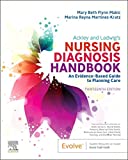
Nursing Care Plans – Nursing Diagnosis & Intervention (10th Edition)
Includes over two hundred care plans that reflect the most recent evidence-based guidelines. New to this edition are ICNP diagnoses, care plans on LGBTQ health issues, and on electrolytes and acid-base balance.
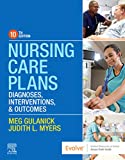
Nurse’s Pocket Guide: Diagnoses, Prioritized Interventions, and Rationales
Quick-reference tool includes all you need to identify the correct diagnoses for efficient patient care planning. The sixteenth edition includes the most recent nursing diagnoses and interventions and an alphabetized listing of nursing diagnoses covering more than 400 disorders.

Nursing Diagnosis Manual: Planning, Individualizing, and Documenting Client Care
Identify interventions to plan, individualize, and document care for more than 800 diseases and disorders. Only in the Nursing Diagnosis Manual will you find for each diagnosis subjectively and objectively – sample clinical applications, prioritized action/interventions with rationales – a documentation section, and much more!
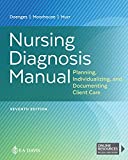
All-in-One Nursing Care Planning Resource – E-Book: Medical-Surgical, Pediatric, Maternity, and Psychiatric-Mental Health
Includes over 100 care plans for medical-surgical, maternity/OB, pediatrics, and psychiatric and mental health. Interprofessional “patient problems” focus familiarizes you with how to speak to patients.
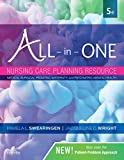
See also
Other recommended site resources for this nursing care plan:
- Nursing Care Plans (NCP): Ultimate Guide and Database MUST READ!
Over 150+ nursing care plans for different diseases and conditions. Includes our easy-to-follow guide on how to create nursing care plans from scratch. - Nursing Diagnosis Guide and List: All You Need to Know to Master Diagnosing
Our comprehensive guide on how to create and write diagnostic labels. Includes detailed nursing care plan guides for common nursing diagnostic labels.
Other care plans and nursing diagnoses related to reproductive and urinary system disorders:
- Acute Glomerulonephritis | 4 Care Plans
- Acute Renal Failure | 6 Care Plans
- Benign Prostatic Hyperplasia (BPH) | 5 Care Plans
- Chronic Renal Failure | 10 Care Plans
- Hemodialysis | 3 Care Plans
- Hysterectomy (TAHBSO) | 6 Care Plans
- Mastectomy | 15 Care Plans
- Menopause | 6 Care Plans
- Nephrotic Syndrome | 5 Care Plans
- Peritoneal Dialysis | 6 Care Plans
- Prostatectomy | 6 Care Plans
- Urolithiasis (Renal Calculi) | 4 Care Plans
- Urinary Tract Infection | 4 Care Plans
- Vesicoureteral Reflux (VUR) | 5 Care Plans
References and Sources
Here are the references and sources for this Chronic Renal Failure Nursing Care Plan:
- Akdeniz, M., Tomova-Simitchieva, T., Dobos, G., Blume-Peytavi, U., & Kottner, J. (2018, February). Does dietary fluid intake affect skin hydration in healthy humans? A systematic literature review. Skin Research and Technology, 24(3).
- Alper, A. B. (2022, January 6). Uremia: Practice Essentials, Pathophysiology, Etiology. Medscape Reference. Retrieved March 16, 2023.
- American Academy of Dermatology Association. (2023). How to relieve itchy skin. American Academy of Dermatology. Retrieved March 15, 2023.
- Arora, P., & Batuman, V. (2023, February 10). Chronic Kidney Disease (CKD): Practice Essentials, Pathophysiology, Etiology. Medscape Reference. Retrieved March 14, 2023.
- Bashir, A., & Sizar, O. (2022, October 13). Laxatives – StatPearls. NCBI. Retrieved March 14, 2023.
- Colbert, G. B., & Besa, E. C. (2023, February 7). Anemia of Chronic Disease and Kidney Failure: Overview, Mechanism of Anemia of Chronic Disease, Prevalence of Anemia of Chronic Disease and CKD. Medscape Reference. Retrieved March 14, 2023.
- Costantinides, F., Castronovo, G., Vettori, E., Frattini, C., Artero, M. L., Bevilacqua, L., Berton, F., Nicolin, V., & Di Lenarda, R. (2018, November). Dental Care for Patients with End-Stage Renal Disease and Undergoing Hemodialysis. International Journal of Dentistry, 2018.
- Dingwall, K. M., Nagel, T., Hughes, J. T., Kavanagh, D. J., Cass, A., Howard, K., Sweet, M., Brown, S., Sajiv, C., & Majoni, S. W. (2019). Wellbeing intervention for chronic kidney disease (WICKD): a randomised controlled trial study protocol. BMC Psychology, 7(2).
- Doenges, M. E., Moorhouse, M. F., & Murr, A. C. (2010). Nursing Care Plans: Guidelines for Individualizing Client Care Across the Life Span. F.A. Davis Company.
- Drew, D. A., Weiner, D. E., & Sarnak, M. J. (2019, December). Cognitive Impairment in CKD: Pathophysiology, Management, and Prevention. American Journal of Kidney Diseases, 74(6).
- Farragher, J. F., Stewart, K. E., Harrison, T. G., Engel, L., Seaton, S. E., & Hemmelgarn, B. R. (2020, March 17). Cognitive interventions for adults with chronic kidney disease: protocol for a scoping review – Systematic Reviews. Systematic Reviews. Retrieved March 16, 2023.
- Gäckler, A., Rohn, H., Lisman, T., Witzke, O., Saner, F. H., Benkö, T., & Kribben, A. (2019, February 20). Evaluation of hemostasis in patients with end-stage renal disease. NCBI. Retrieved March 14, 2023.
- Gajendra, S., McIntosh, S., & Ghosh, S. (2023, January). Effects of tobacco product use on oral health and the role of oral healthcare providers in cessation: A narrative review. Tobacco Induced Diseases. Retrieved March 15, 2023.
- Geense, W. W., van Gaal, B. G. I., Knoll, J. L., Cornelissen, E. A. M., & van Achterberg, T. (2017). The support needs of parents having a child with a chronic kidney disease: a focus group study. Child: Care, Health, and Development, 43(6).
- Heerema, E. (2022, February 19). Using Reality Orientation in Alzheimer’s and Dementia. Verywell Health. Retrieved March 16, 2023.
- Ikizler, T. A., Burrowes, J. D., Byham-Gray, L. D., Campbell, K. L., Carrero, J.-J., Chan, W., Fouque, D., Friedman, A. N., Ghaddar, S., Goldstein-Fuchs, D. J., Kaysen, G. A., Kopple, J. D., Teta, D., Yee-Moon Wang, A., & Cuppari, L. (2020). KDOQI CLINICAL PRACTICE GUIDELINE FOR NUTRITION IN CKD: 2020 UPDATE. American Journal of Kidney Disease, 76(3).
- Ishigami, J., & Matsushita, K. (2019). Clinical epidemiology of infectious disease among patients with chronic kidney disease. Clinical and Experimental Nephrology, 23.
- Jankowski, J., Floege, J., Fliser, D., Böhm, M., & Marx, N. (2021, March). Cardiovascular Disease in Chronic Kidney Disease. Circulation, 143(11).
- Jasti, D. B., Mallipeddi, S., Apparao, A., Vengamma, B., Sivakumar, V., & Kolli, S. (2017). A Clinical and Electrophysiological Study of Peripheral Neuropathies in Predialysis Chronic Kidney Disease Patients and Relation of Severity of Peripheral Neuropathy with Degree of Renal Failure. NCBI. Retrieved March 16, 2023.
- Joboshi, H., & Oka, M. (2017, February). Effectiveness of an educational intervention (the Encourage Autonomous Self-Enrichment Program) in patients with chronic kidney disease: A randomized controlled trial. International Journal of Nursing Studies, 67.
- Kalantar-Zadeh, K., Jafar, T. H., Nitsch, D., Neuen, B. L., & Perkovic, V. (2021, August-September). Chronic kidney disease. The Lancet, 398(10302).
- Khadka, A., & Dani, S. (2020, December). WashingHands according to the WHOGuideline since the COVID-19 Outbreak in the Context of Medical Undergraduates at a Tertiary Care Center: A Descriptive Crosssectional Stud. Journal of Nepal Medical Association, 58(232).
- Lai, S., Pastore, S., Piloni, L., Manguilli, M., Esposito, Y., Pierella, F., Galani, A., Pintus, G., Mastroluca, D., Shahabadi, H., Ciccariello, M., Salciccia, S., & Von Heland, M. (2018, September 27). Chronic kidney disease and urological disorders: systematic use of uroflowmetry in nephropathic patients. NCBI. Retrieved March 20, 2023.
- Latimer, S. L., Gillespie, B. M., Walker, R. M., Thalib, L., Whitty, J. A., McInnes, E., & Chaboyer, W. P. (2020, June 2). Repositioning for pressure injury prevention in adults. NCBI. Retrieved March 15, 2023.
- McNichol, L., Mackey, D., Watts, C., & Zuecca, N. (2020, January 6). Choosing a support surface for pressure injury prevention and treatment. NCBI. Retrieved March 15, 2023.
- Moe, S. M. (2023). Chronic Kidney Disease: Mineral and Bone Disorder (CKD-MBD) — New Nomenclature for an Old Problem. Medscape Education. Retrieved March 20, 2023.
- Molzahn, A. E., Shields, L., Bruce, A., Schick-Makaroff, K., Antonio, M., & White, L. (2018, August). Living with dying: A narrative inquiry of people with chronic kidney disease and their family members. Journal of Advanced Nursing, 75(1).
- Morgan, K. A., & Ahlawat, R. (2021). Ranitidine – StatPearls. NCBI. Retrieved March 14, 2023.
- Mullens, W., & Nijst, P. (2016). Cardiac Output and Renal Dysfunction: Definitely More Than Impaired Flow. Journal of the American Cardiology, 67(19).
- National Kidney Foundation. (2018, May 22). The Dental / Kidney Disease Connection. National Kidney Foundation. Retrieved March 15, 2023.
- Nesheiwat, Z., & Lee, J. J. (2022, November 28). Uremic Pericarditis – StatPearls. NCBI. Retrieved March 14, 2023.
- Nunley, J. R., & Elston, D. M. (2020, February 24). Calciphylaxis: Background, Pathophysiology, Etiology. Medscape Reference. Retrieved March 15, 2023.
- Nursing the Patient with Altered Cognitive Function. (2018). In J. Santy-Tomlinson & K. Hertz (Eds.), Fragility Fracture Nursing: Holistic Care and Management of the Orthogeriatric Patient. Springer International Publishing.
- Otis-Green, S., & Altilio, T. (Eds.). (2011). Oxford Textbook of Palliative Social Work. Oxford University Press, USA.
- Porter, S., & Stein, A. (2019, February 18). Dental care. National Kidney Federation. Retrieved March 15, 2023, from
- Reddy, S., Chitturi, C., & Yee, J. (2019, January). Vaccination in Chronic Kidney Disease. Advances in Chronic Kidney Disease, 26(1).
- Reszke, R., & Szepietowski, J. C. (2018, July). End-Stage Renal Disease Chronic Itch and Its Management. Dermatalogic Clinics, 36(3).
- Shankar, M., Narasimhappa, S., & N.S., M. (2021, January). Home. YouTube. Retrieved March 18, 2023.
- Simon, L. V., & Keenaghan, M. (2022). Serotonin Syndrome – StatPearls. NCBI. Retrieved March 15, 2023.
- Simonsen, E., Komenda, P., Lerner, B., Askin, N., Bohm, C., Shaw, J., Tangri, N., & Rigatto, C. (2017, November). Treatment of Uremic Pruritus: A Systematic Review. American Journal of Kidney Diseases, 70(5).
- Syed-Ahmed, M., & Narayanan, M. (2019, January). Immune Dysfunction and Risk of Infection in Chronic Kidney Disease. Advances in Chronic Kidney, 26(1).
- Toke, A. B. (2010). GI bleeding risk in patients undergoing dialysis. Gastrointestinal Endoscopy, 71(1).
- Tuot, D. S., & Boulware, L. E. (2017, January). Telehealth Applications to Enhance CKD Knowledge and Awareness Among Patients and Providers. Advances in Chronic Kidney Disease, 24(1).
- Vaidya, S. R., & Aeddula, N. R. (2022, October 24). Chronic Renal Failure – StatPearls. NCBI. Retrieved March 14, 2023.
- van Haalen, H., Jackson, J., Spinowitz, B., Milligan, G., & Moon, R. (2020). Impact of chronic kidney disease and anemia on health-related quality of life and work productivity: analysis of multinational real-world data. BMC Nephrology, 21(88).
- Vicente-Ibarra, N., Martin, F., Pernias-Escrig, V., Sandin-Rollan, M., Nuñez-Martinez, L., Lozano, T., Macias-Villaniego, M. J., Carrillo-Aleman, L., Candela-Sanchez, E., Guzman, E., Esteve-Pastor, M. A., Orenes-Piñero, E., Valdes, M., Rivera-Caravaca, J. M., & Ruiz-Nodar, J. M. (2019, March). Impact of anemia as risk factor for major bleeding and mortality in patients with acute coronary syndrome. European Journal of Internal Medicine, 61.
- Viggiano, D., Wagner, C. A., Martino, G., Nedergaard, M., Zoccali, C., Unwin, R., & Capasso, G. (2020, March). Mechanisms of cognitive dysfunction in CKD. Nature Reviews Nephrology, 16.
- Wagner, S., Merkling, T., Metzger, M., Bankir, L., Laville, M., Frimat, L., Combe, C., Jacquelinet, C., Fouque, D., Massy, Z. A., Stengel, B., & CKD-REIN Study Group. (2022, March 25). Water intake and progression of chronic kidney disease: the CKD-REIN cohort study. PubMed. Retrieved March 15, 2023.
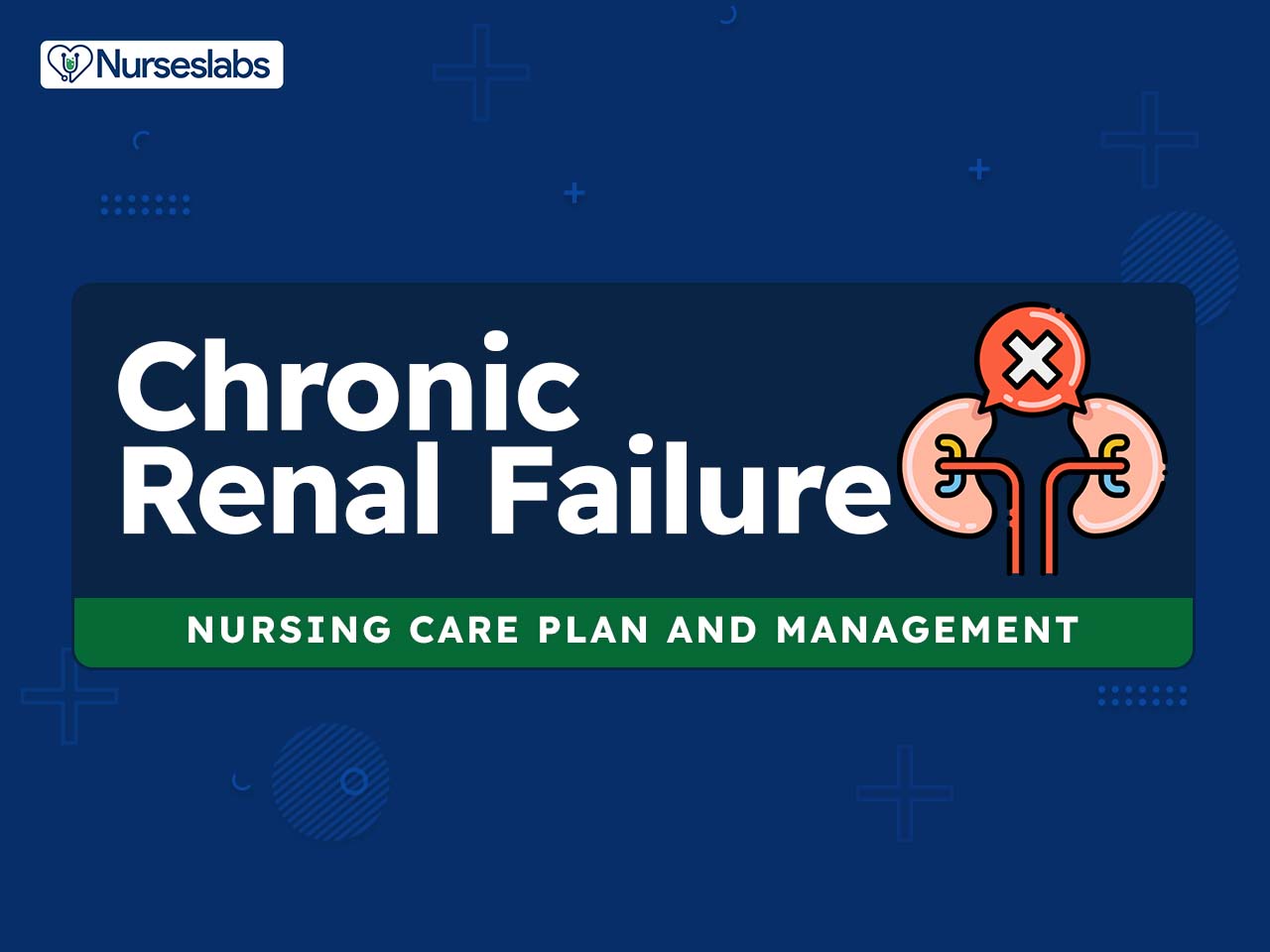

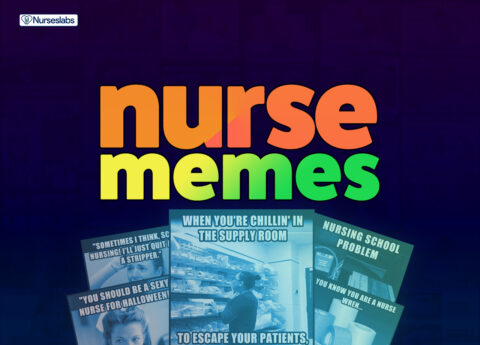
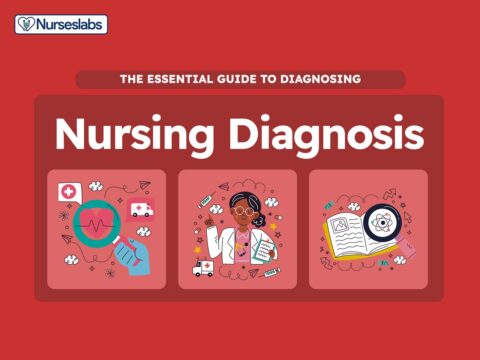
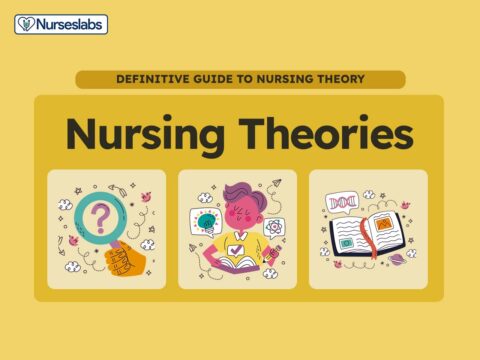
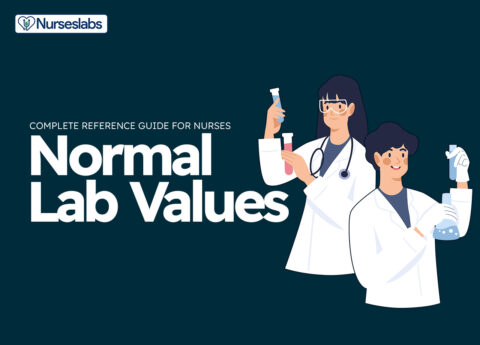



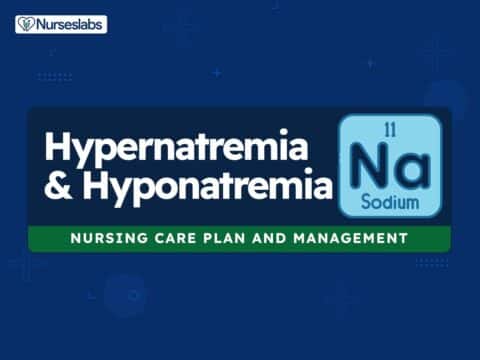


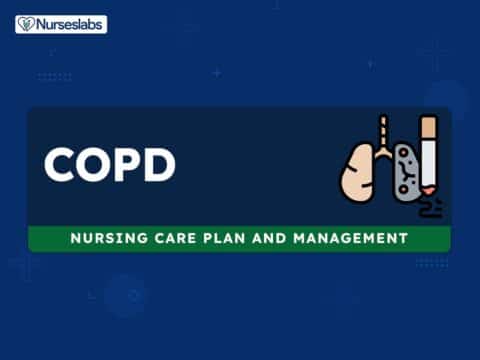
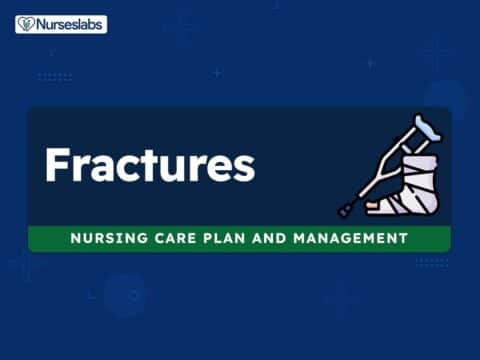
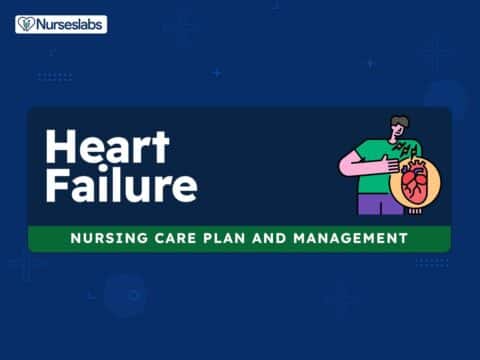
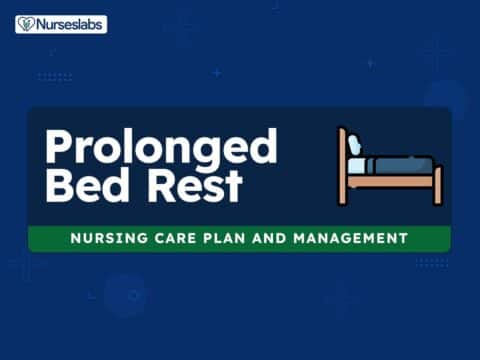
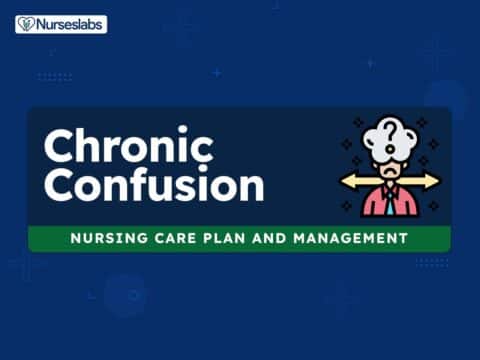
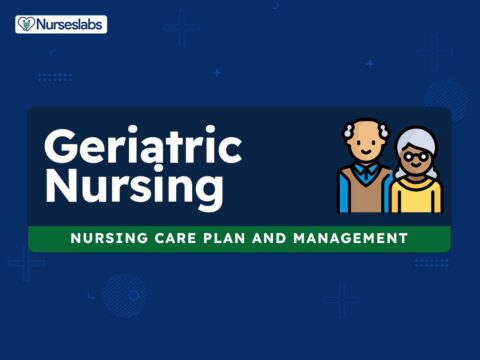
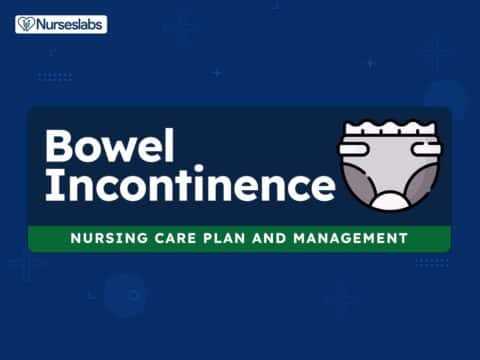
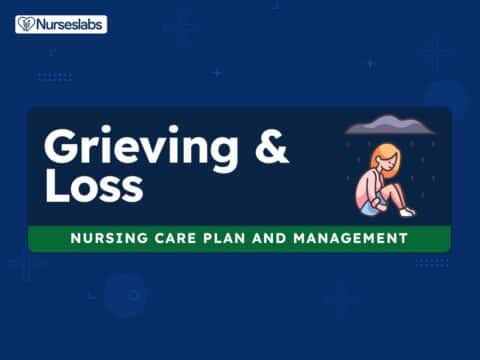
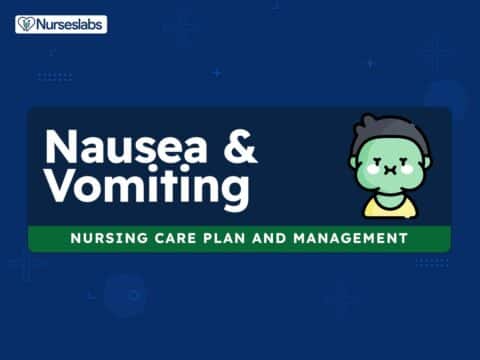
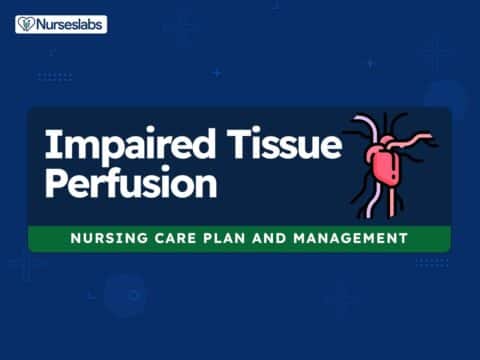

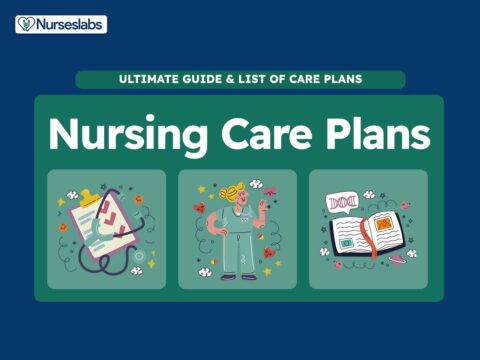
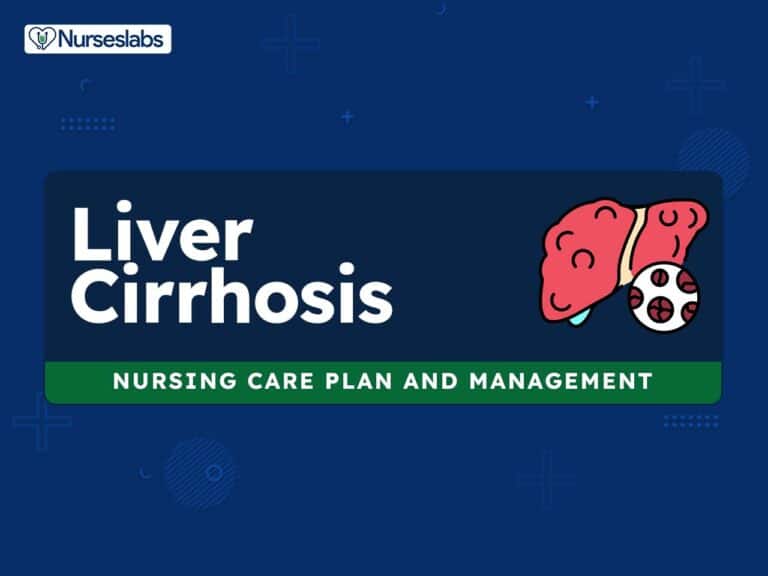
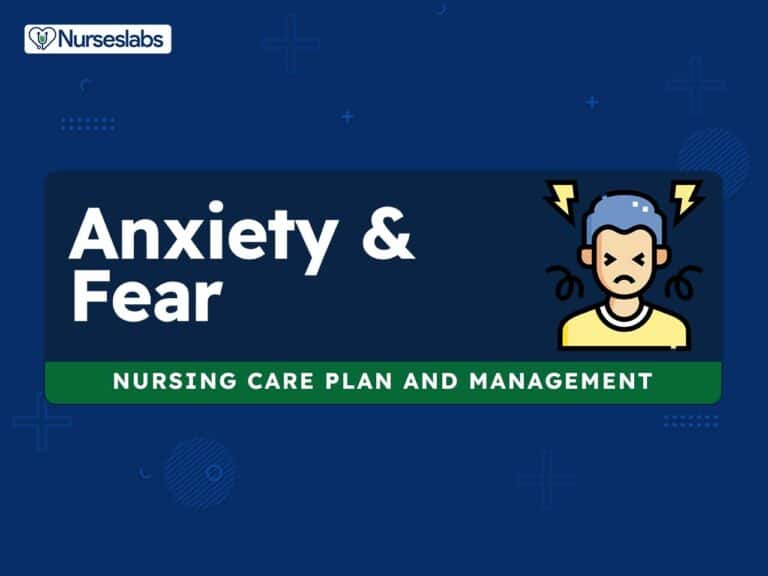

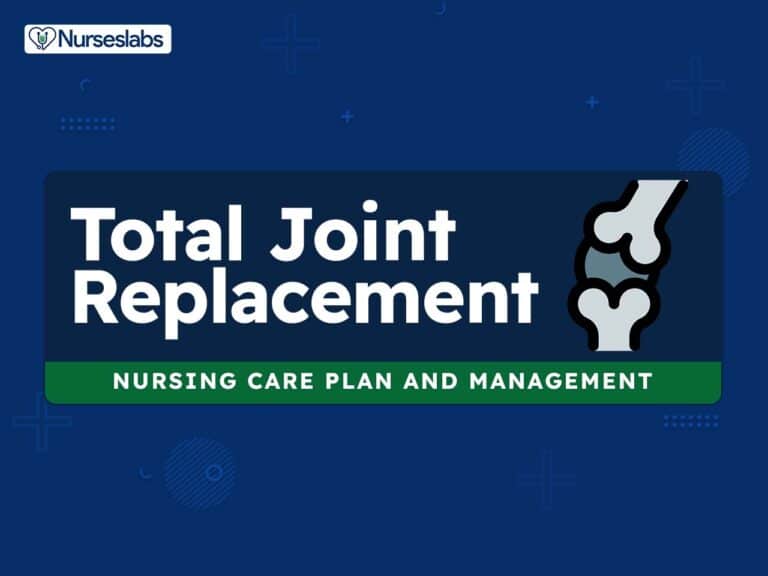
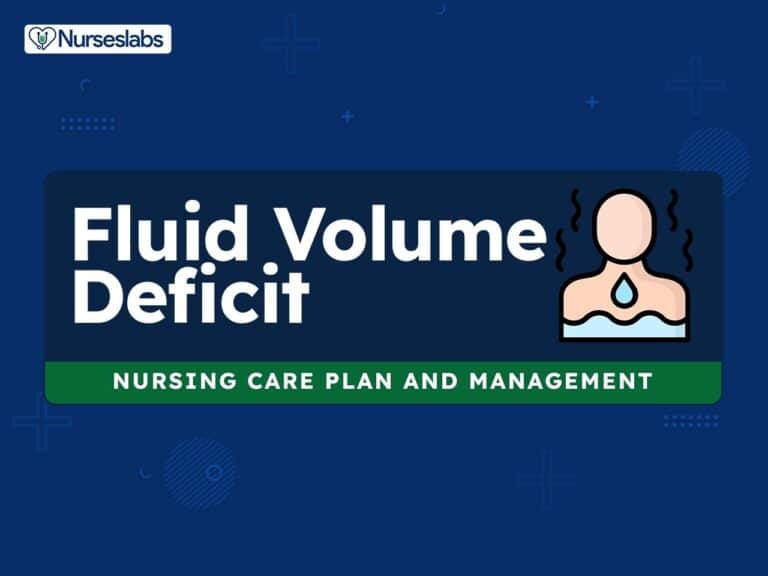


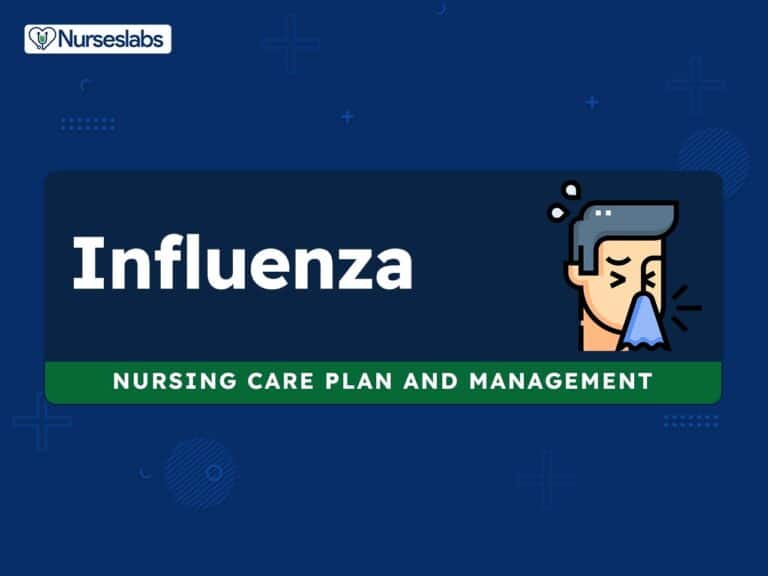
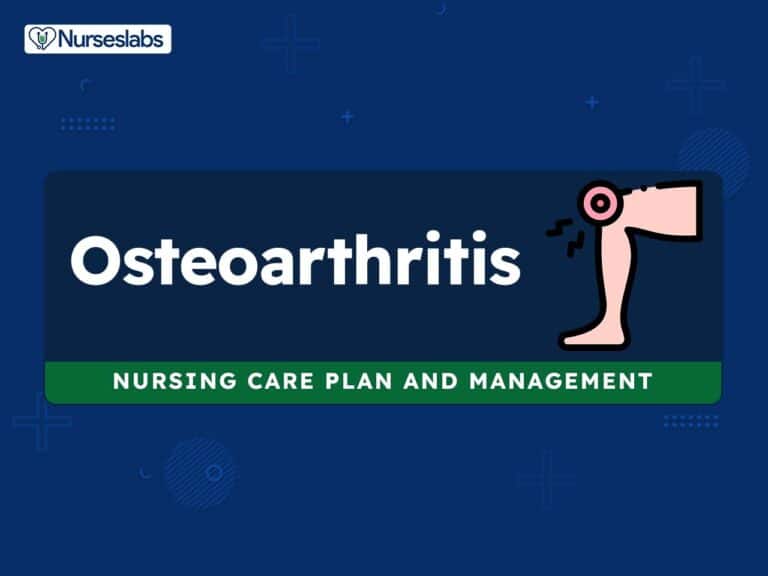
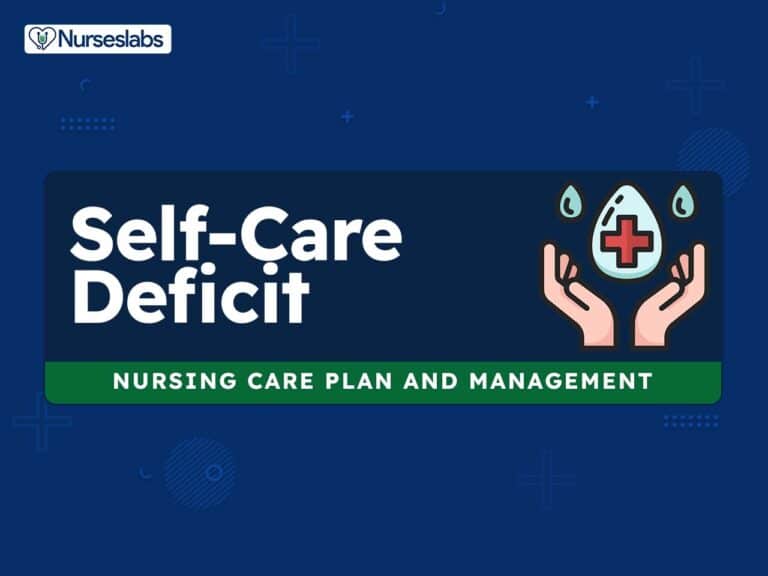
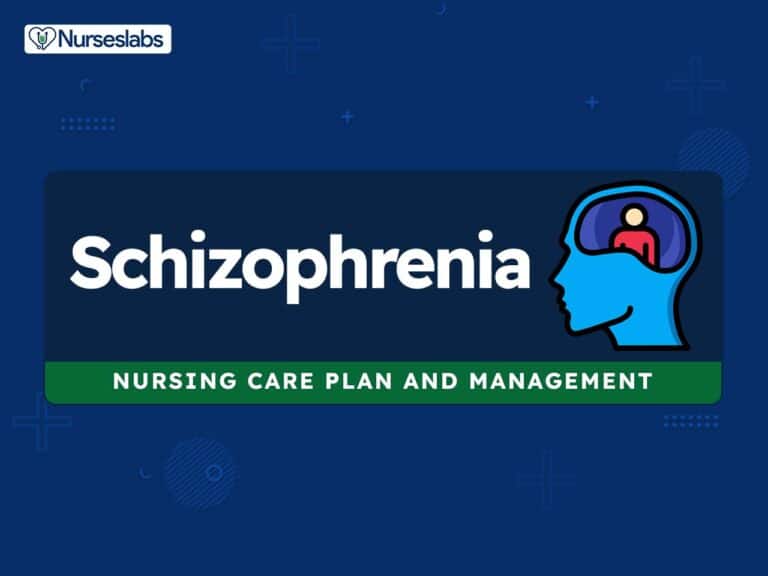
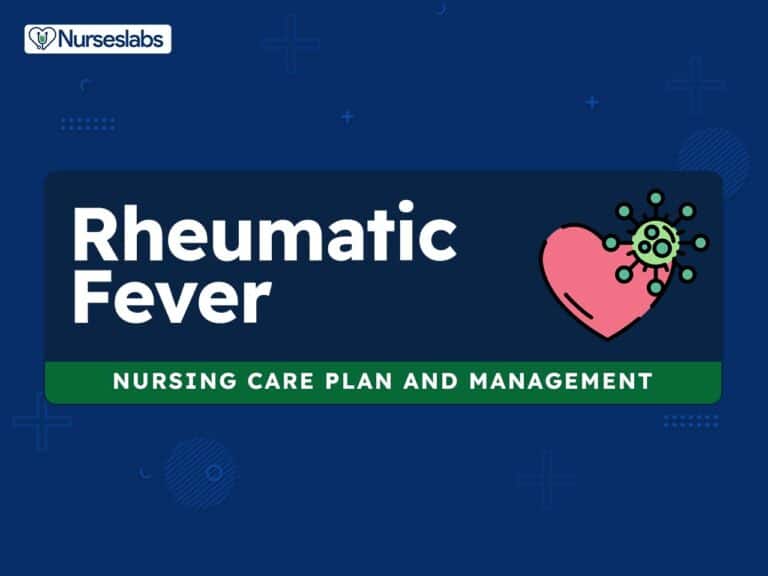
Leave a Comment